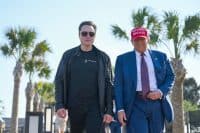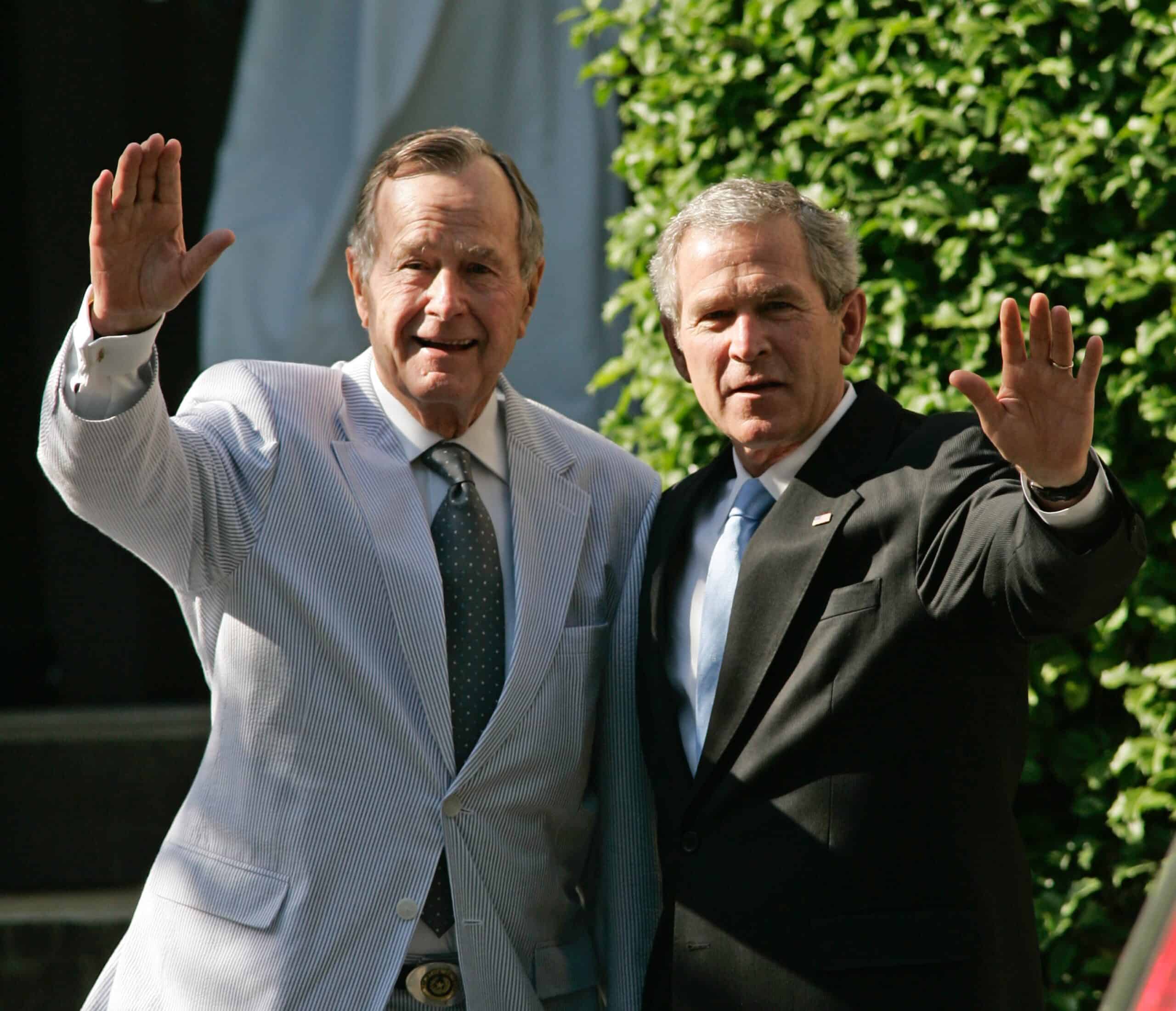
This post may contain links from our sponsors and affiliates, and Flywheel Publishing may receive
compensation for actions taken through them.
24/7 Insights
-
- Some presidents have been devoutly religious even while in office.
- Only two Catholic presidents have been elected.
- Many presidents incorporated religion into how they ran the country.
- Also: Are You On Track to Retire? Take This Quiz and Find Out (Sponsored)
While US Presidents are many things, including the Commander-in-Chief, quite a few have taken pride in their religious practices. Generally speaking, every US President has had some religious affiliation, though it’s also safe to say that some were more religious than others. Some presidents, like Jimmy Carter, were famous for using their faith to help guide their time in office.
45. Joe Biden
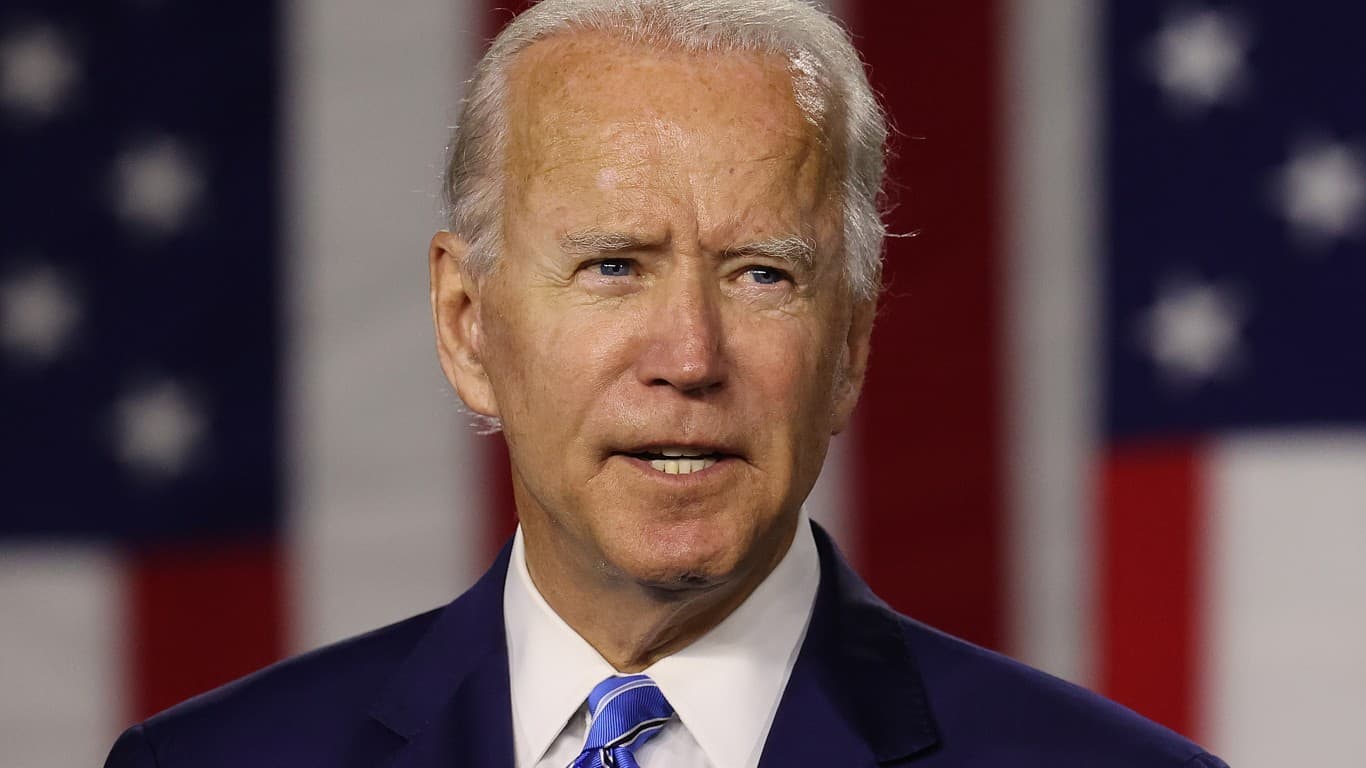
- Religious affiliation: Roman Catholic
The second Catholic president, Joe Biden, was raised in the church. However, his stance as being pro-choice left him exposed to attacks from the church, and he was refused communion.
44. Donald Trump
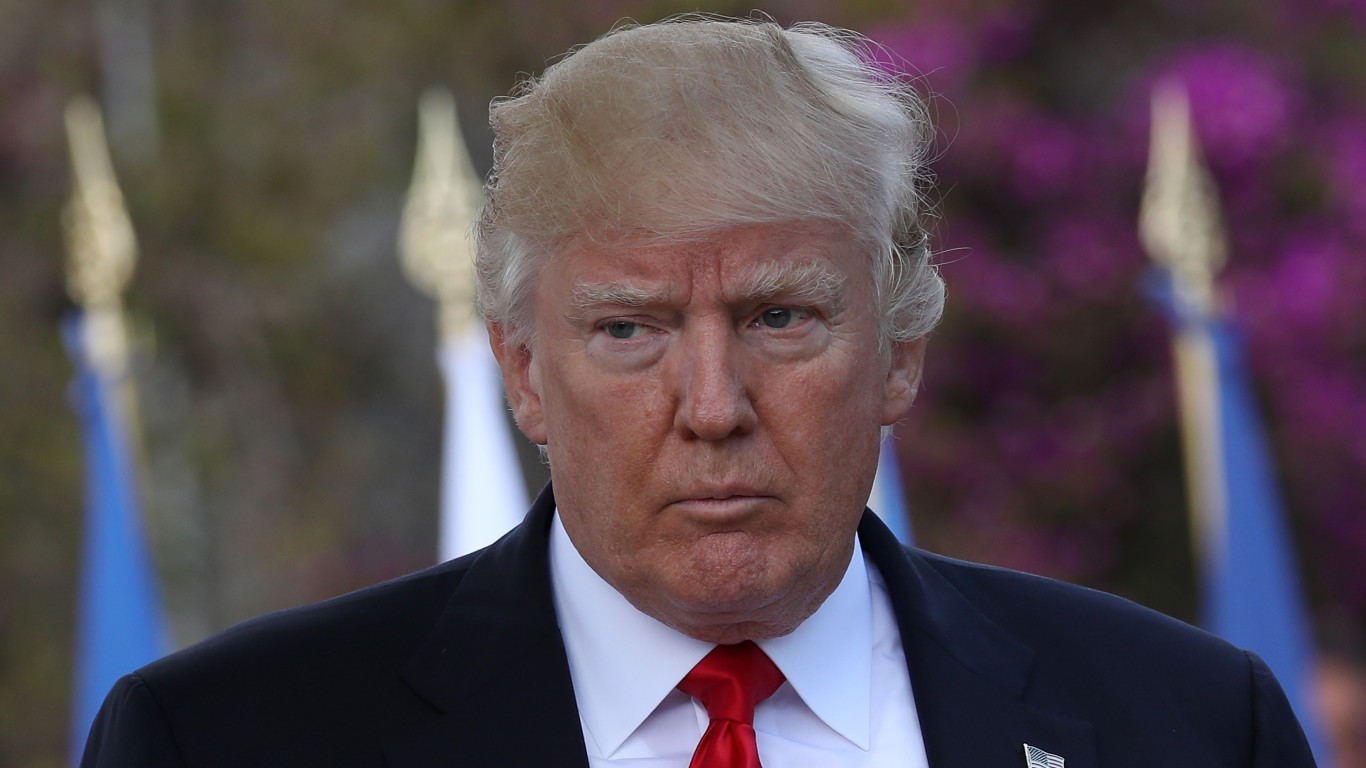
- Religious affiliation: Non-denominational Protestant
Although his family was affiliated with the Reformed Church in New York, Donald Trump’s religious beliefs are unclear. In 2020, Trump declared himself non-denominational.
43. Barack Obama

- Religious affiliation: Non-denominational Protestant
A member of a secular household, Obama became religious as a member of the Trinity United Church of Chris in the 1990s. However, Obama resigned from the Church due to its pastor’s controversial comments.
42. George W. Bush

- Religious affiliation: Methodist
Raised in the Episcopalian faith like his father, George W. Bush became Methodist after marrying his wife. He considered himself a “born-again” Christian and credits giving up drinking due to religion.
41. Bill Clinton
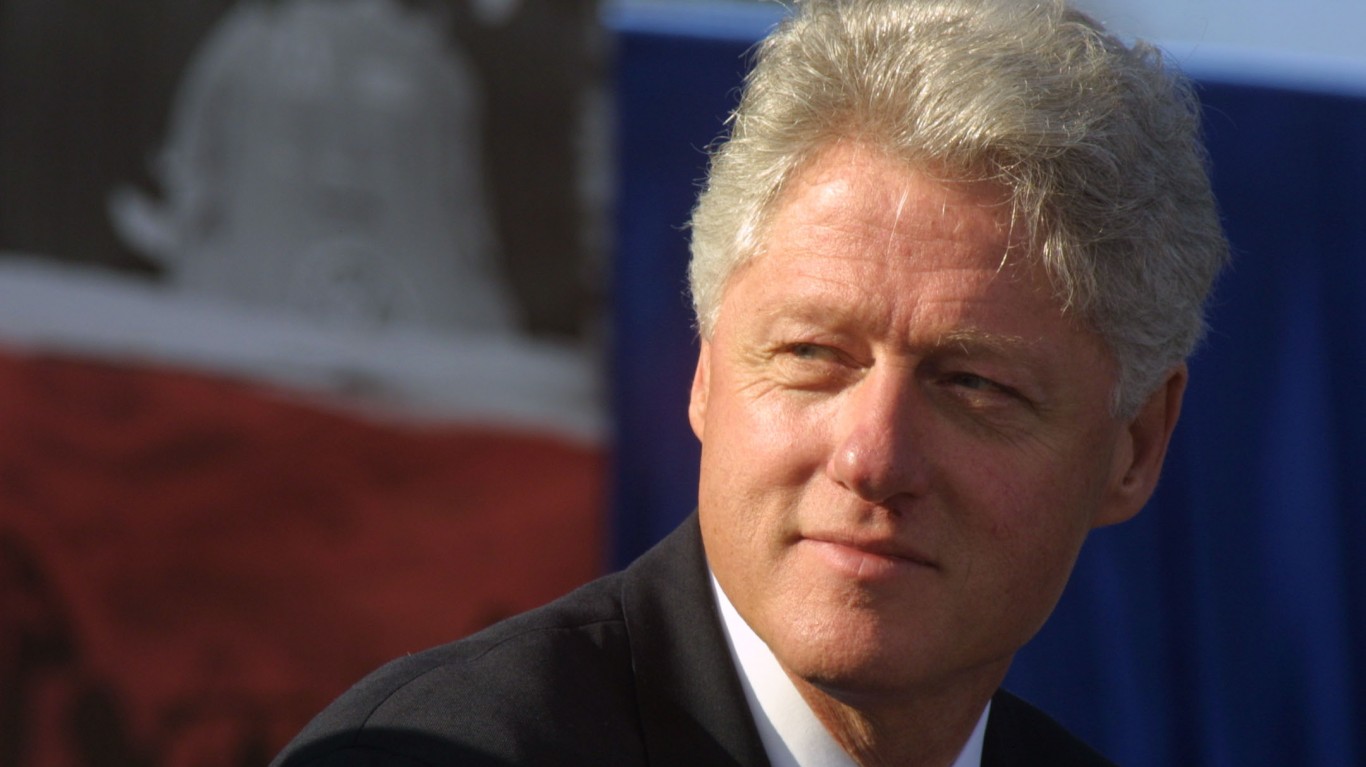
- Religious affiliation: Baptist
Baptized at a young age, Bill Clinton regularly discussed his faith. However, Clinton was criticized for his actions in office, which were counter to religious doctrine.
40. George H.W. Bush
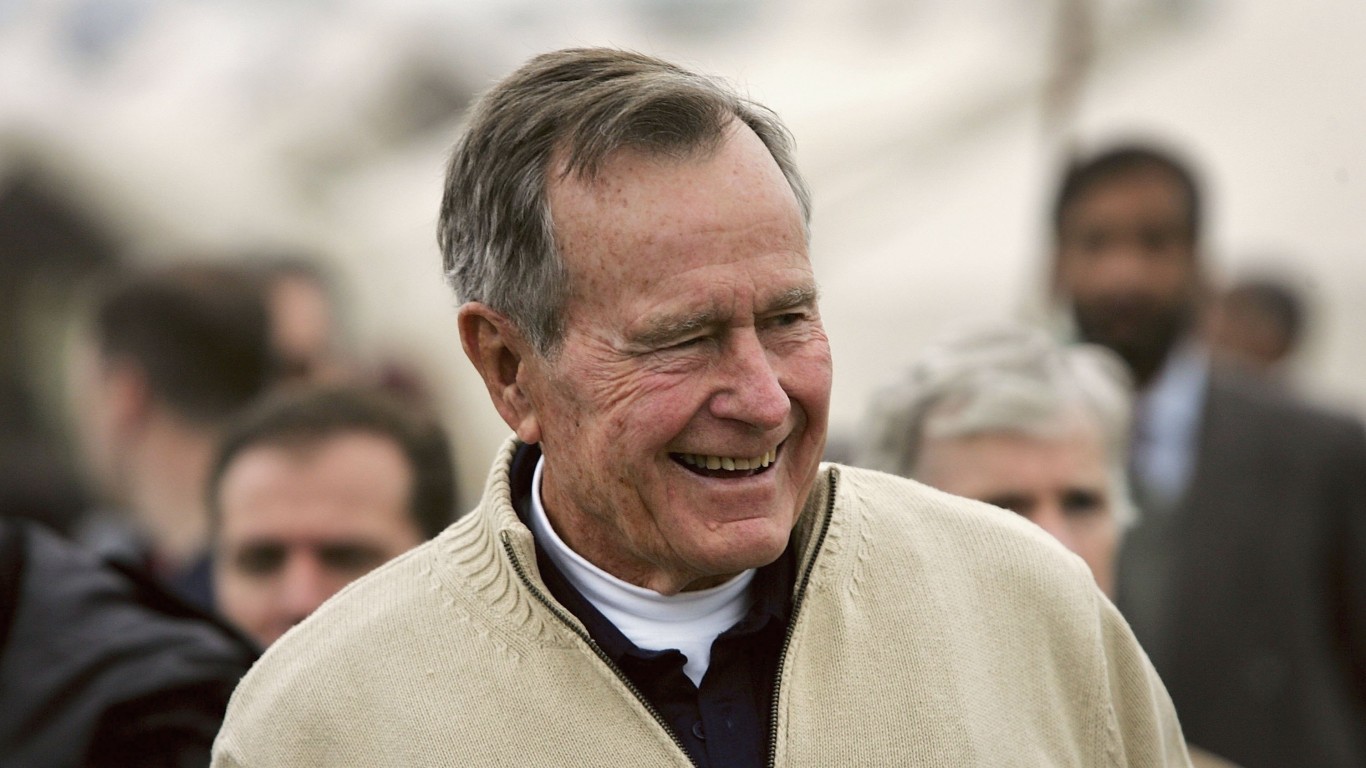
- Religious affiliation: Episcopalian
George H.W. Bush remained an active member of the Episcopalian church his entire life. He didn’t openly discuss faith privately but added faith-based messaging to his speeches.
39. Ronald Reagan
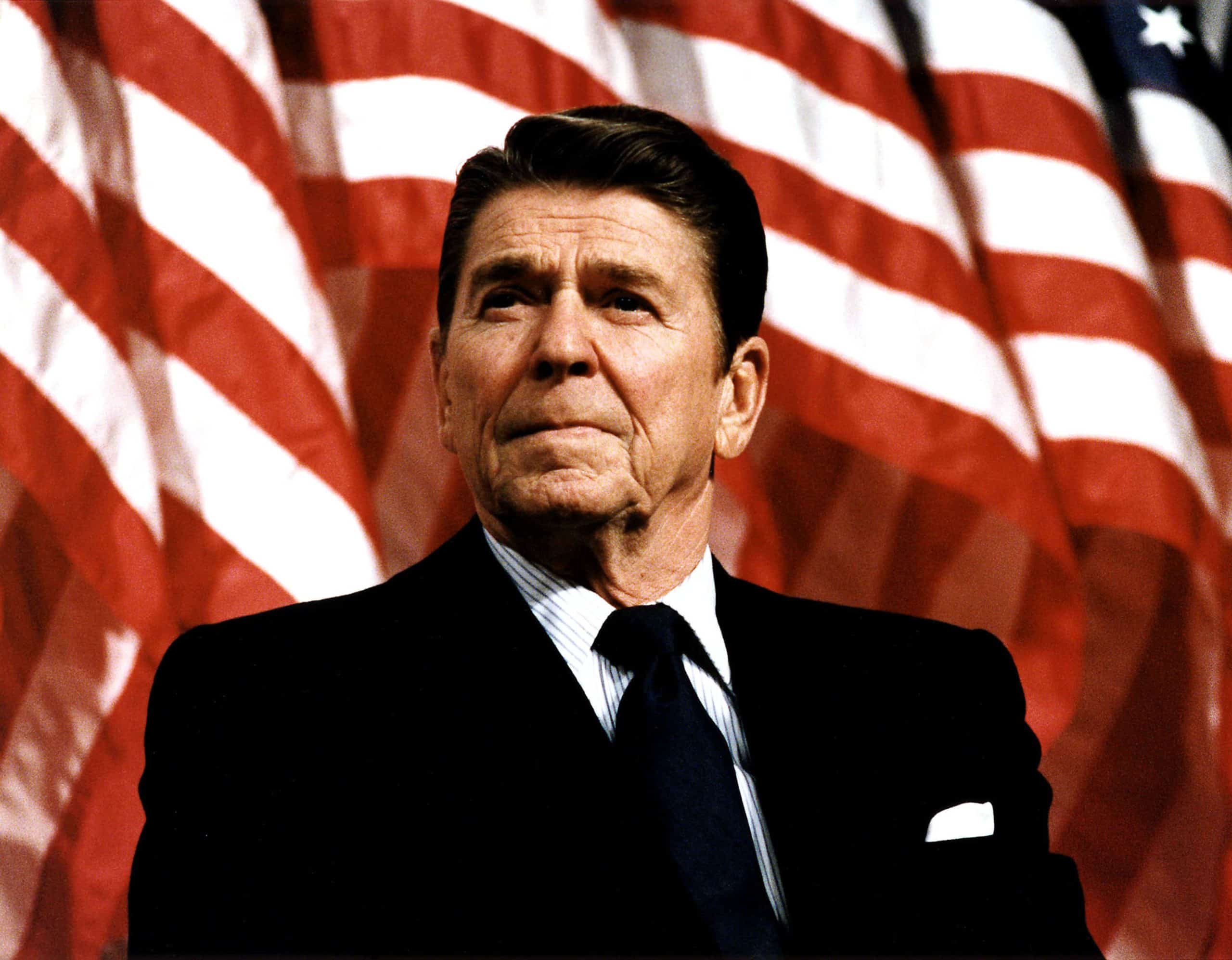
- Religious affiliation: Presbyterian
Raised as a Disciple of Christ, Ronald Reagan switched affiliation to Presbyterian later in life. He pushed for a voluntary school of prayer but avoided church services during his presidency.
38. Jimmy Carter
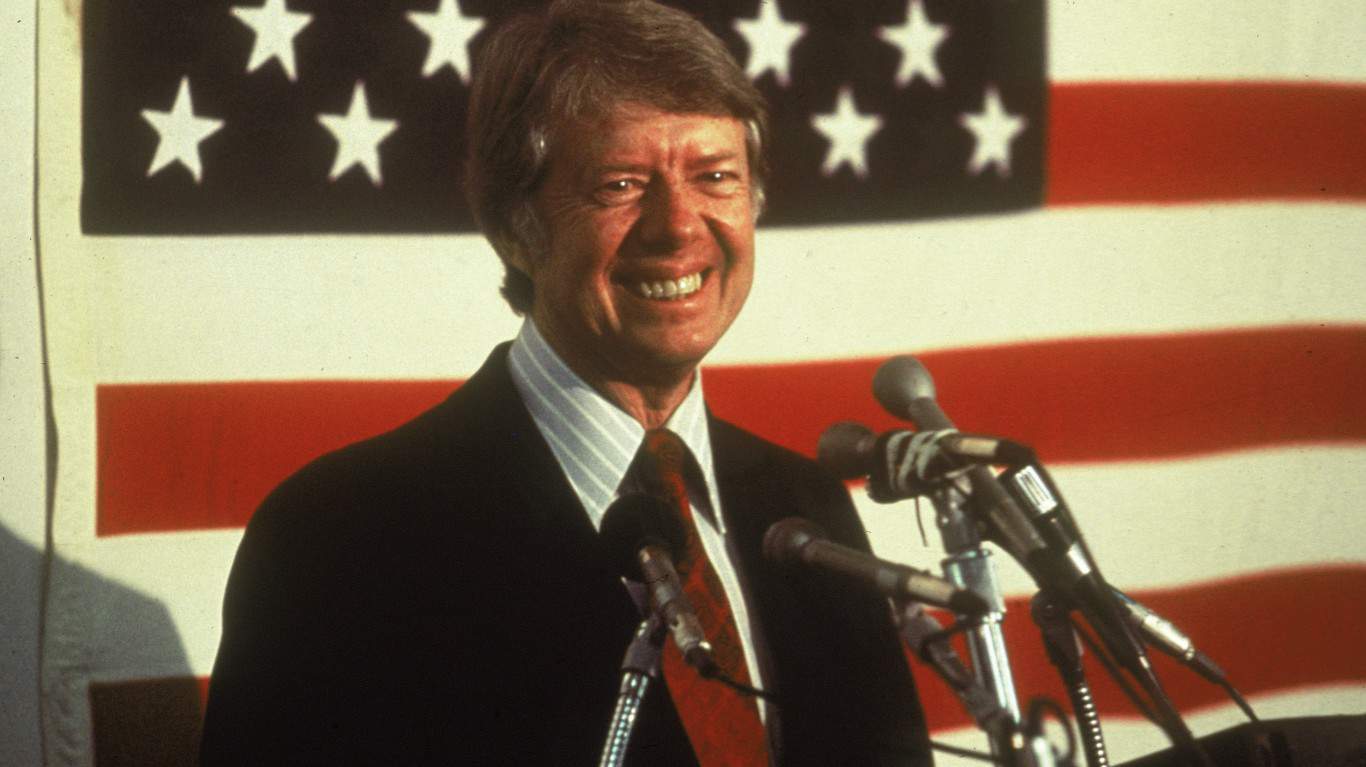
- Religious affiliation: Baptist
Considered one of the most openly religious presidents, Jimmy Carter was raised a Baptist. When he turned 18, he served as a deacon and taught Sunday school. He was known for regularly praying as President and writing religious books while in office.
37. Gerald R. Ford
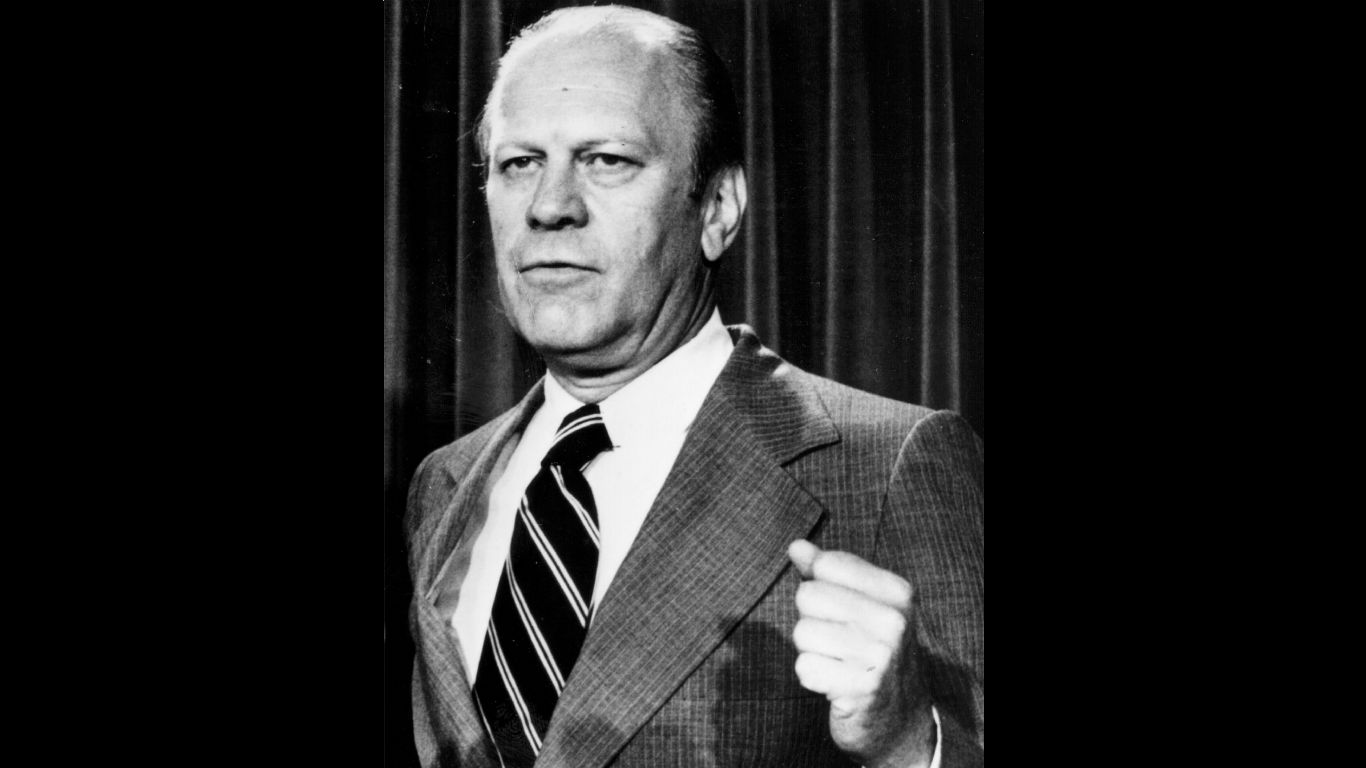
- Religious affiliation: Episcopalian
Raised as an Episcopalian, Gerald Ford wasn’t religious but had a personal faith and attended weekly Bible study sessions in Congress.
36. Richard Nixon
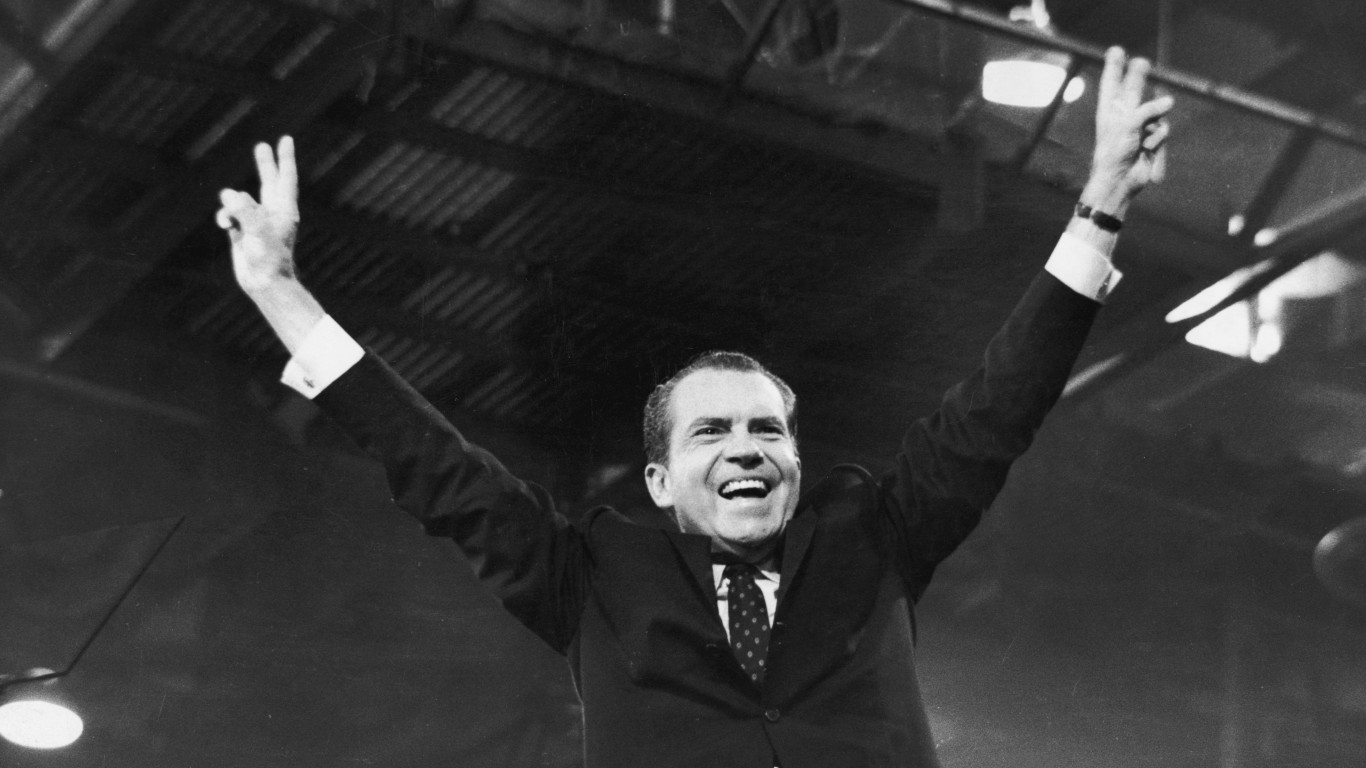
- Religious affiliation: Quaker
Born into a Quaker family, Richard Nixon taught Sunday school for a time and was close friends with popular preacher Billy Graham.
35. Lyndon B. Johnson
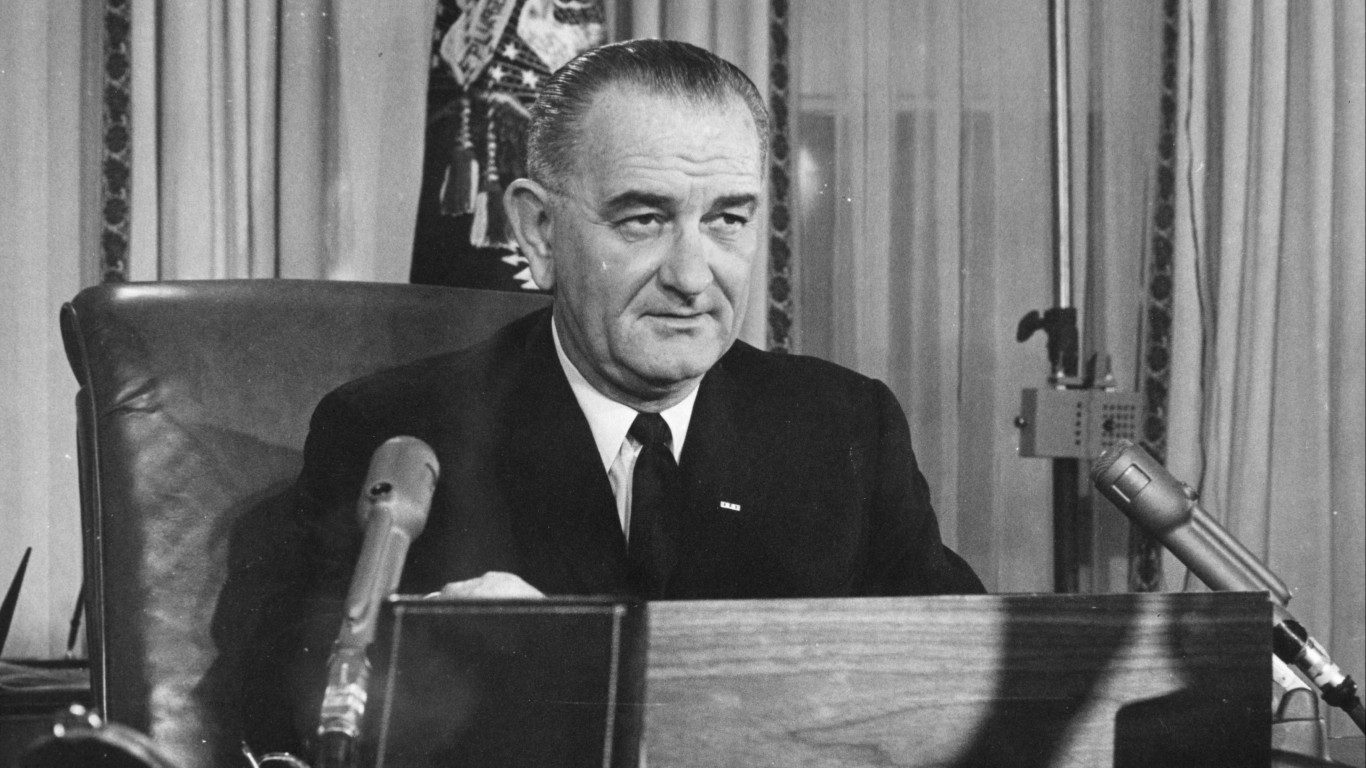
- Religious affiliation: Disciples of Christ
Lyndon B. Johnson didn’t consider himself very religious when he joined the Disciples of Christ as a young man, but he did refer to faith when discussing Civil Rights and Vietnam.
34. John F. Kennedy
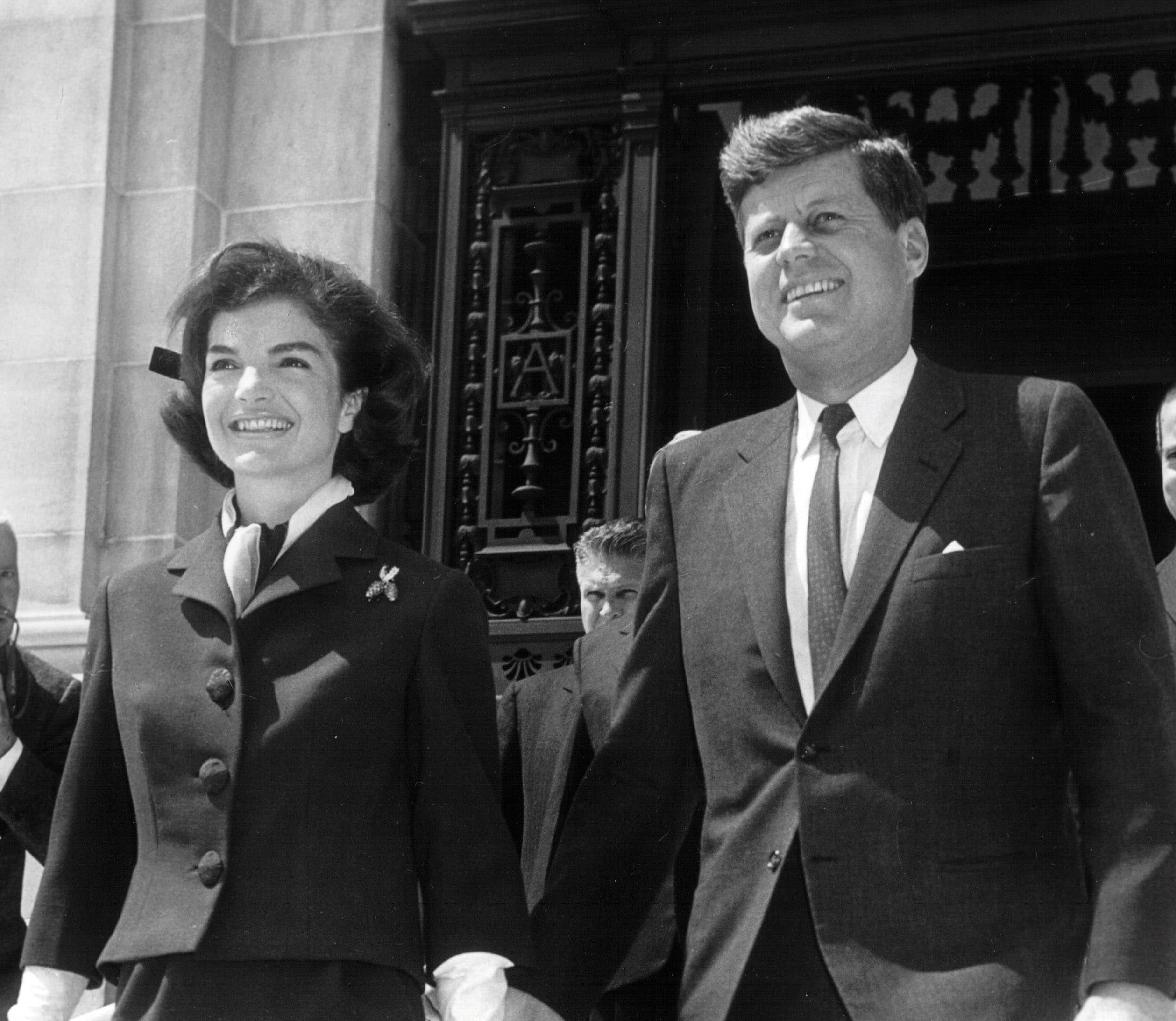
- Religious affiliation: Roman Catholic
The first Catholic president, John F. Kennedy, would attend church regularly, believing he had a duty to do so. He also defended the Catholic church at a time when anti-Catholic sentiment was very high.
33. Dwight D. Eisenhower
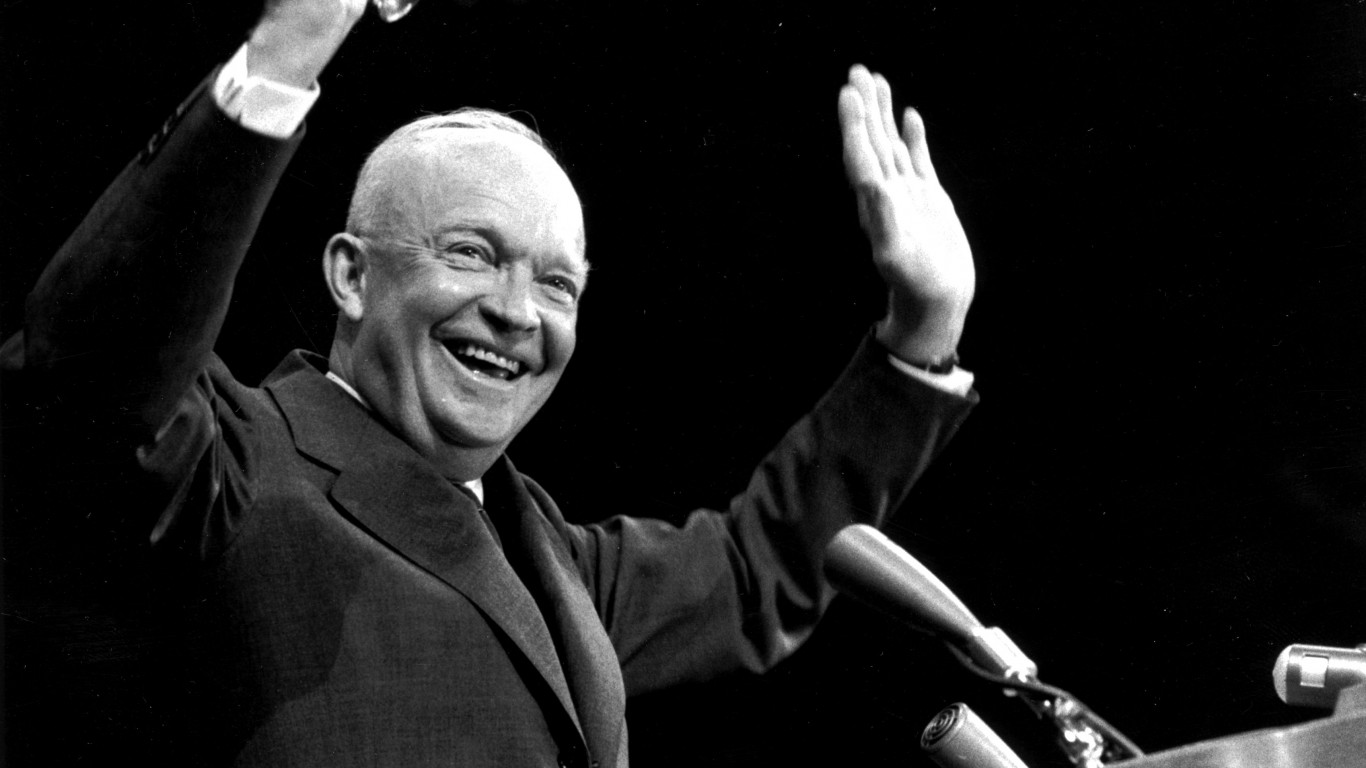
- Religious affiliation: Presbyterian
Dwight D. Eisenhower remained religious throughout his life as a member of a religious family. It was Eisenhower who added “under God” to the Pledge of Allegiance.
32. Harry S. Truman
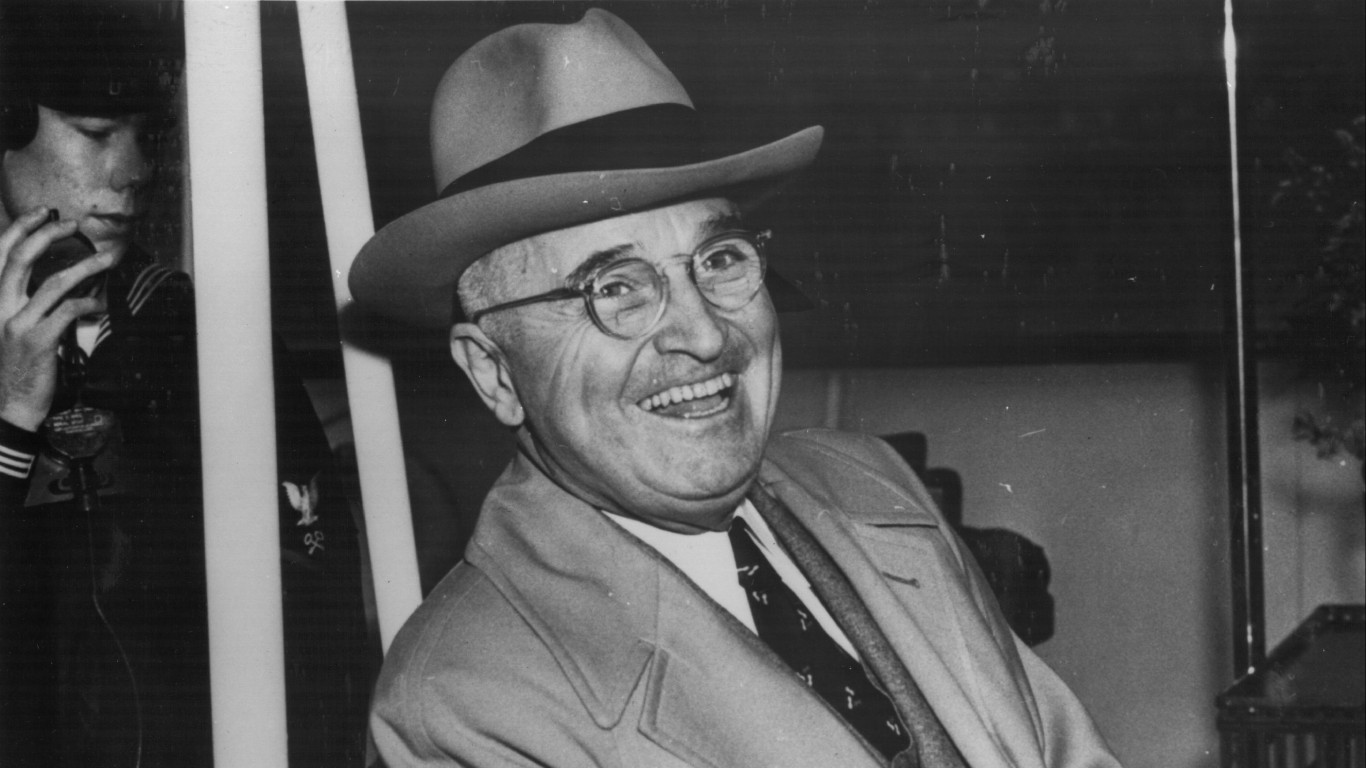
- Religious affiliation: Southern Baptist
Born into a Baptist family, Harry S. Truman was a member of the Southern Baptist church. Truman described himself as not overly religious and didn’t openly discuss his faith.
31. Franklin D. Roosevelt
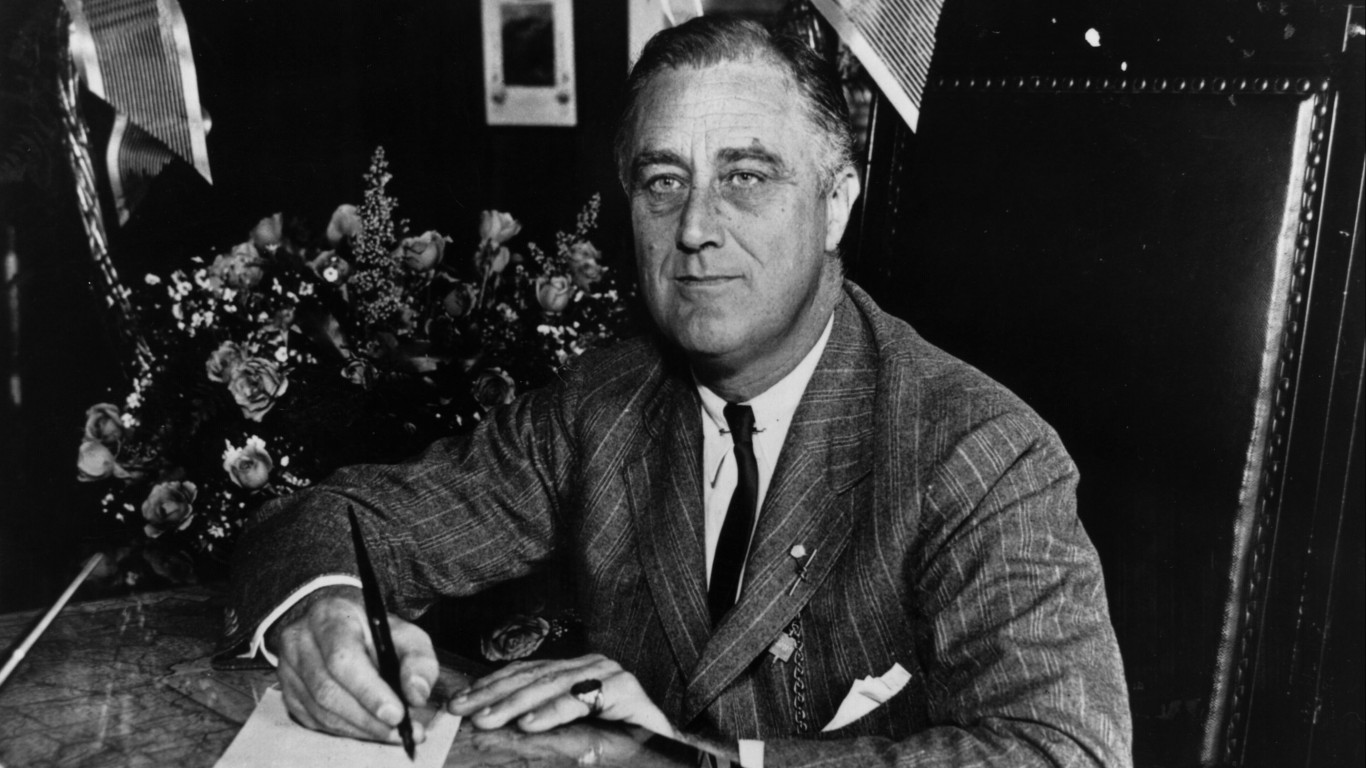
- Religious affiliation: Episcopalian
Franklin D. Roosevelt was a member of the Episcopalian church throughout his life. However, despite having a strong, albeit quiet, personal faith, he didn’t regularly attend church.
30. Herbert Hoover
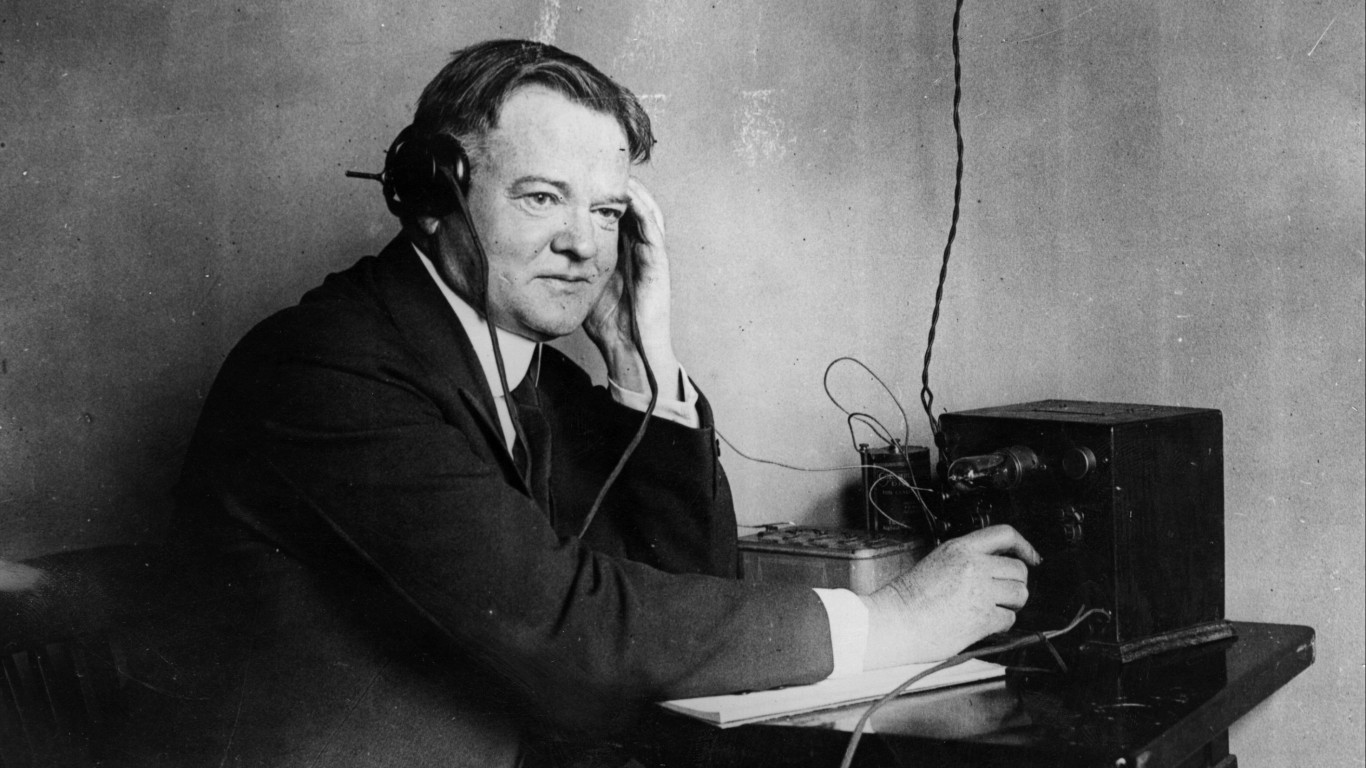
- Religious affiliation: Quaker
Coming from a family of devout Quakers, Herbert Hoover remained a church member throughout his life. He helped build a Quaker meeting house as president and remained devoutly religious.
29. Calvin Coolidge
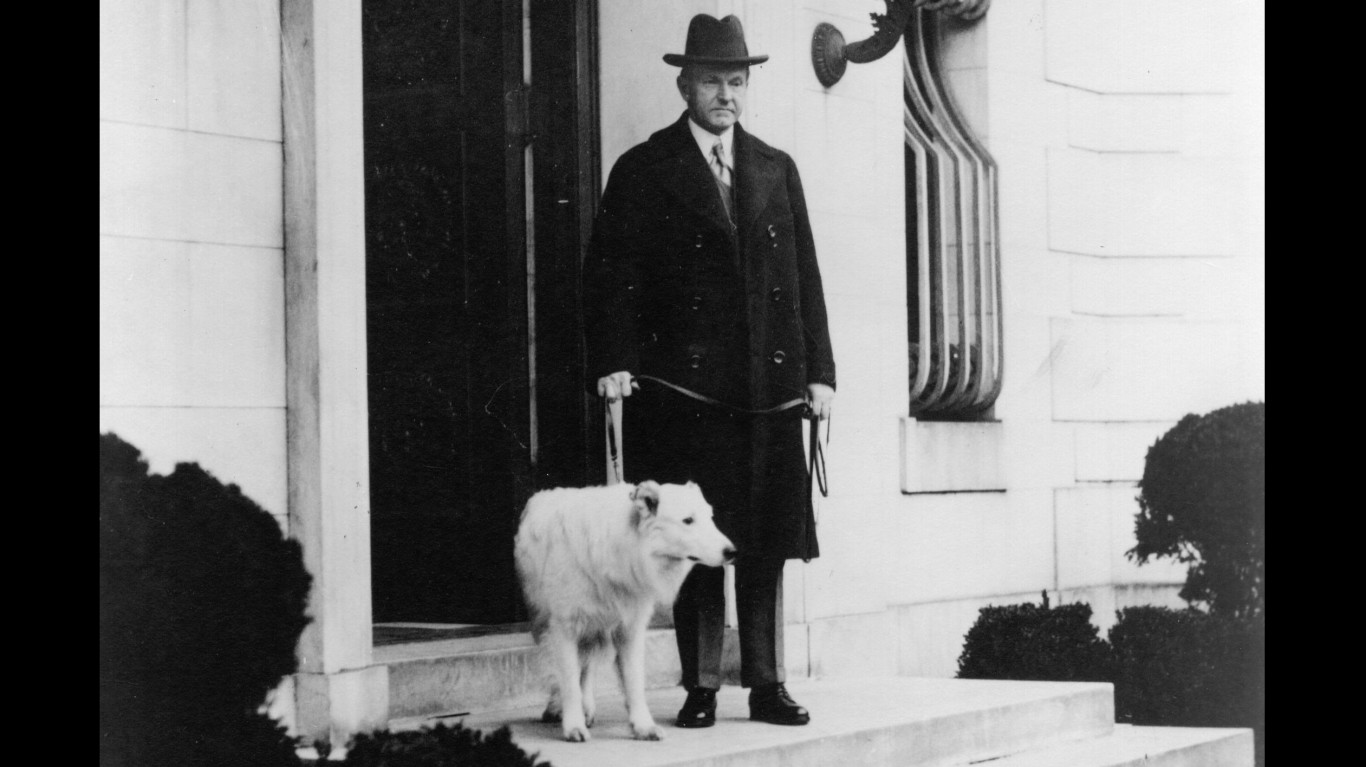
- Religious affiliation: Congregationalist
Calvin Coolidge grew up without any nearby churches or religion. However, he believed in God and was given membership in a church when he became president.
28. Warren G. Harding
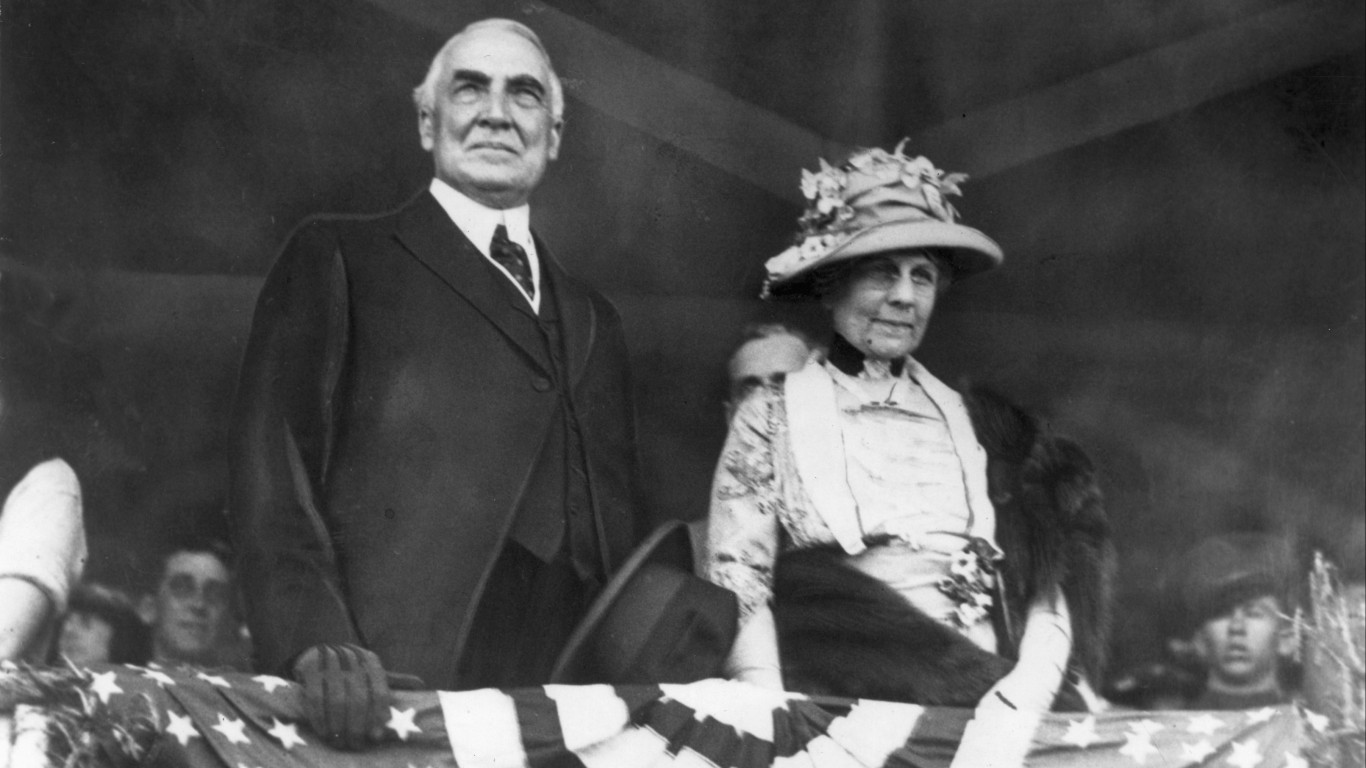
- Religious affiliation: Northern Baptist
A Baptist by birth, Warren G. Harding attended church services regularly. Harding would often speak of religion and Christianity during his presidential addresses.
27. Woodrow Wilson
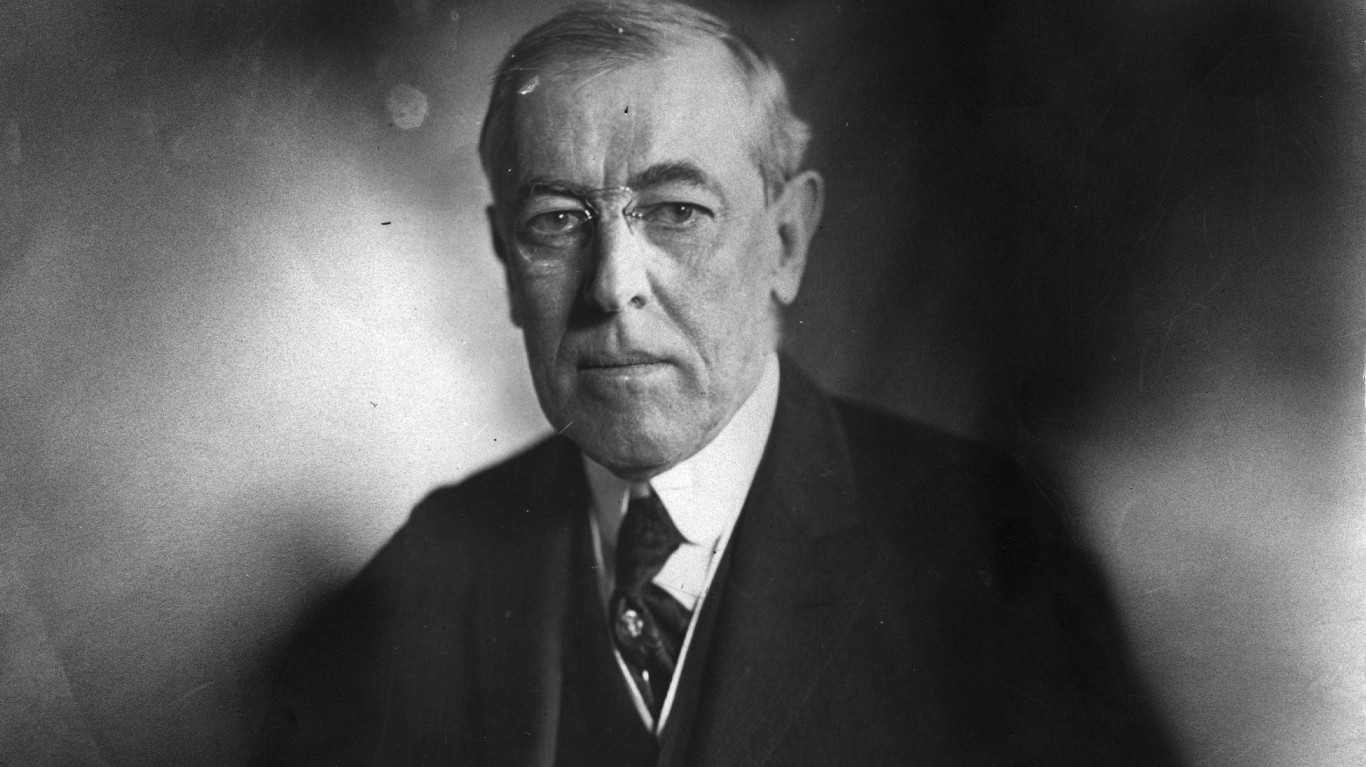
- Religious affiliation: Presbyterian
Woodrow Wilson, the son of a Presbyterian minister, joined the church at age 16 in 1873. He believed God put him on Earth to be president and read the Bible daily.
26. William Howard Taft
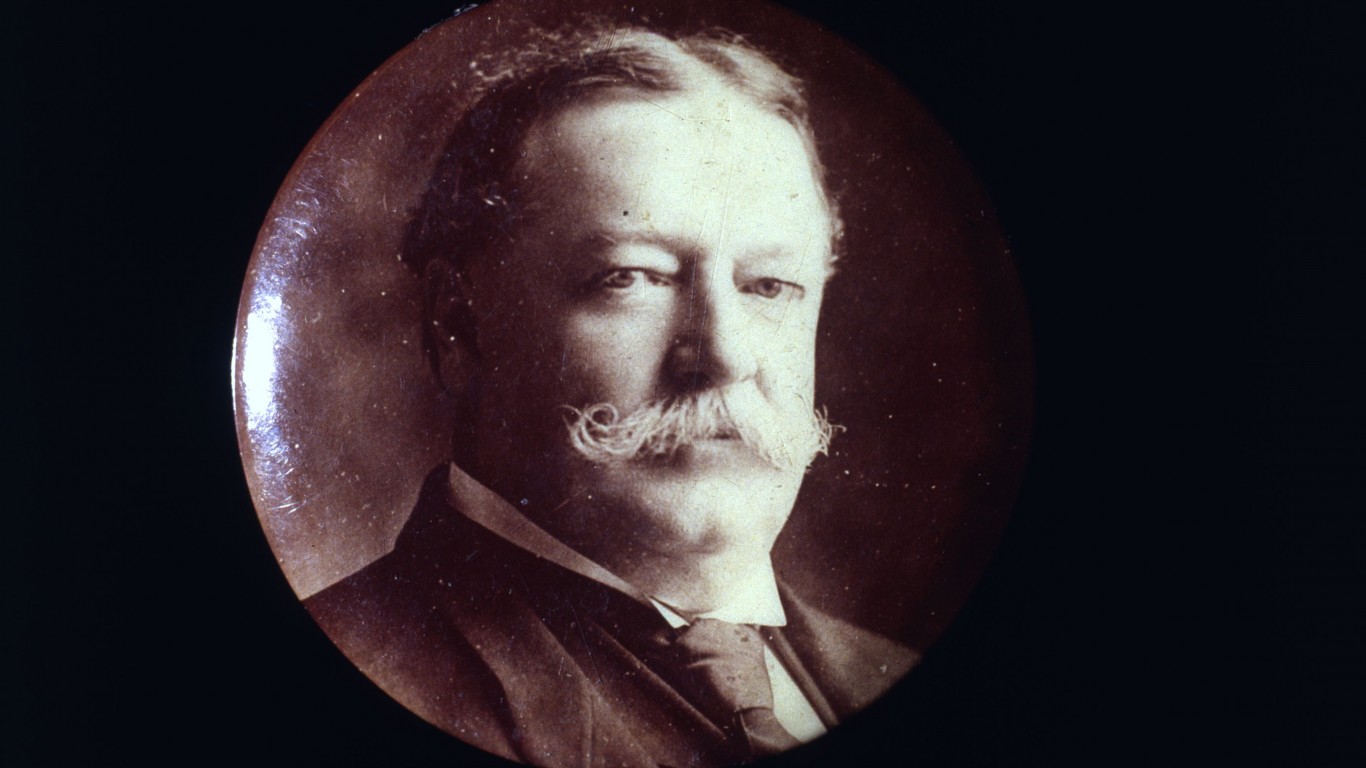
- Religious affiliation: Unitarian
A believer in God, William Howard Taft did not believe in Christ’s divinity. Taft would mention God during his time as President but was sometimes accused of Atheism.
25. Theodore Roosevelt
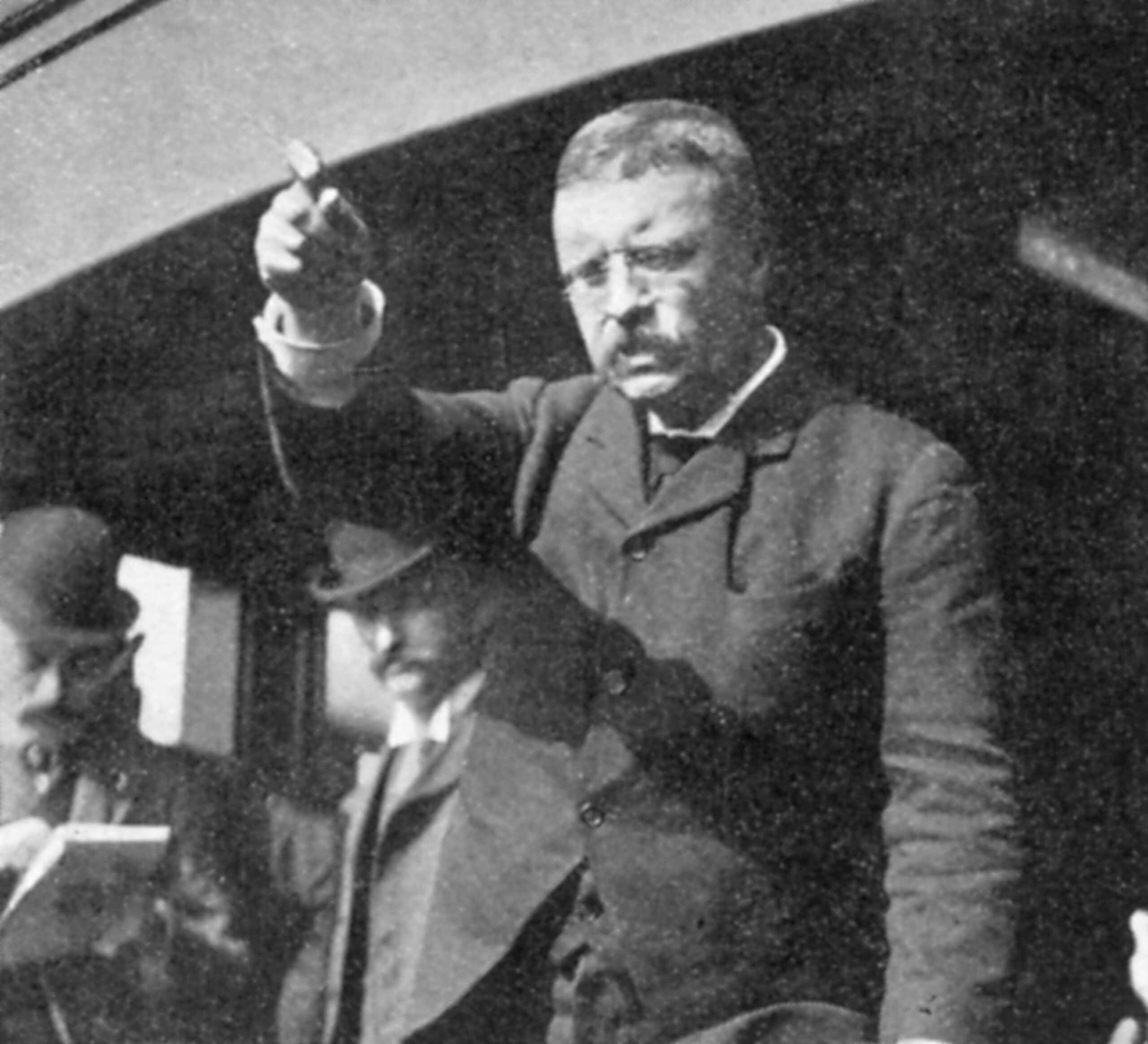
- Religious affiliation: Reformed Church
Theodore Roosevelt attended church regularly as a child and continued to do so throughout his life. He attended Episcopalian church services when there was no Reformed Church nearby.
24. William McKinley
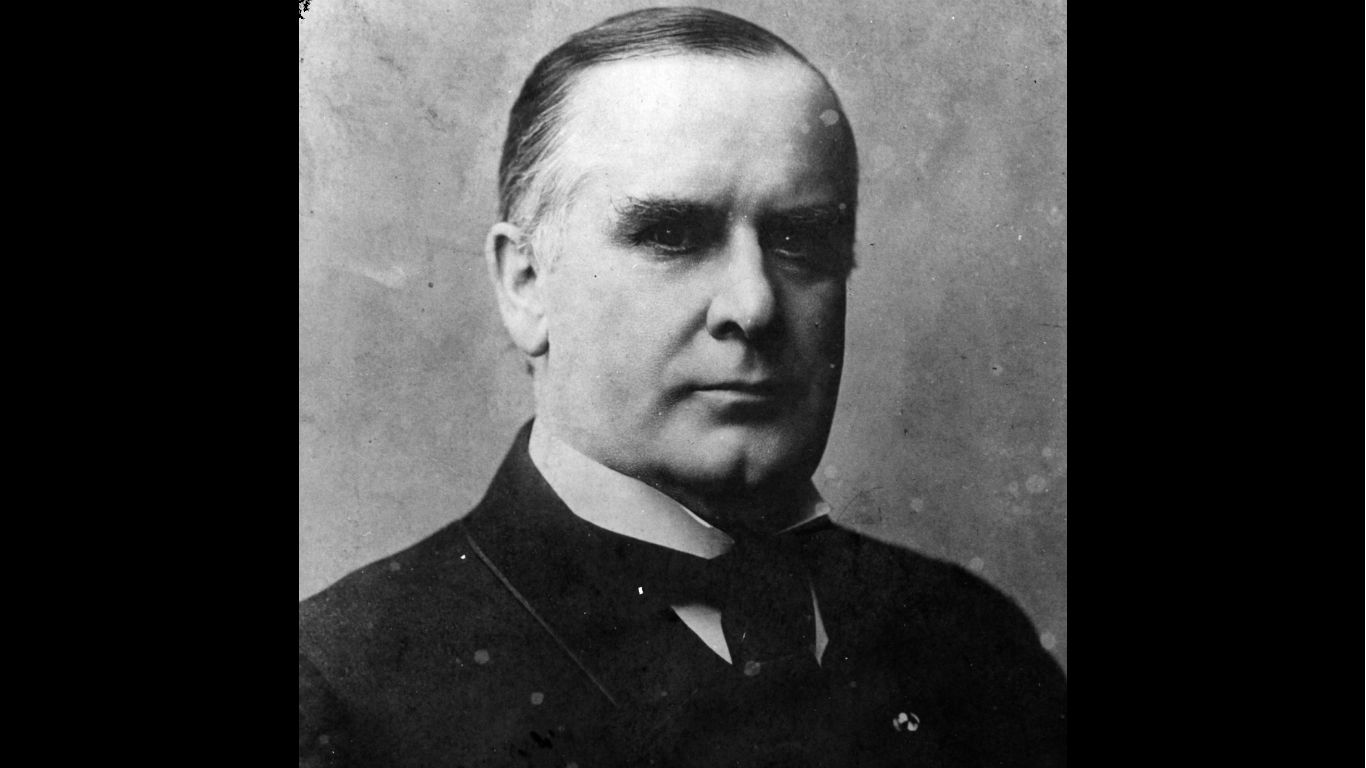
- Religious affiliation: Methodist
William McKinley was devoutly religious and almost became a minister. He joined the Methodist church at 16 and often talked openly about God.
23. Benjamin Harrison
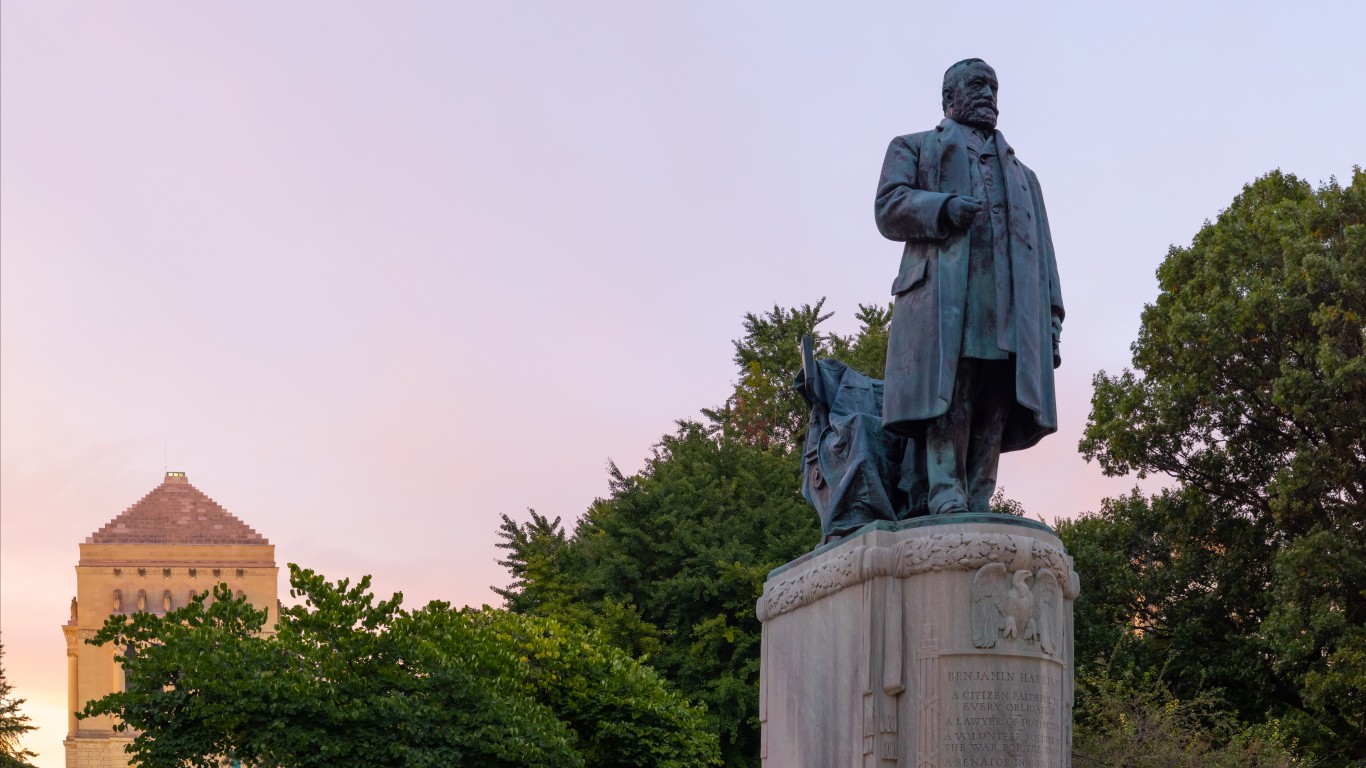
- Religious affiliation: Presbyterian
The son of a devoutly religious family, Benjamin Harrison was very religious throughout his life. Harrison would pray in his tent every night during the Civil War and attend church as often as possible.
22. Grover Cleveland
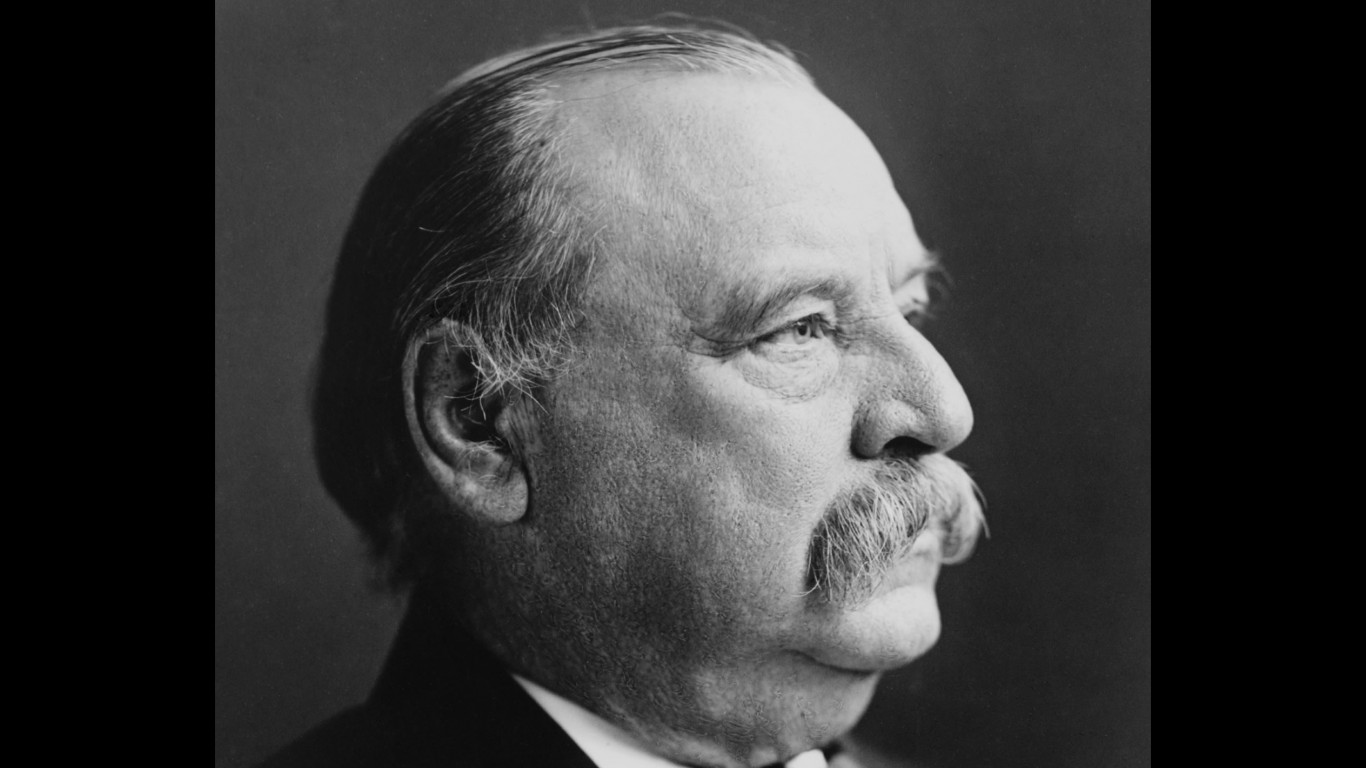
- Religious affiliation: Presbyterian
Grover Cleveland, the son of a Presbyterian minister, spent much of his childhood at church. While he had a strong faith, Cleveland returned to church more frequently as president.
21. Chester A. Arthur
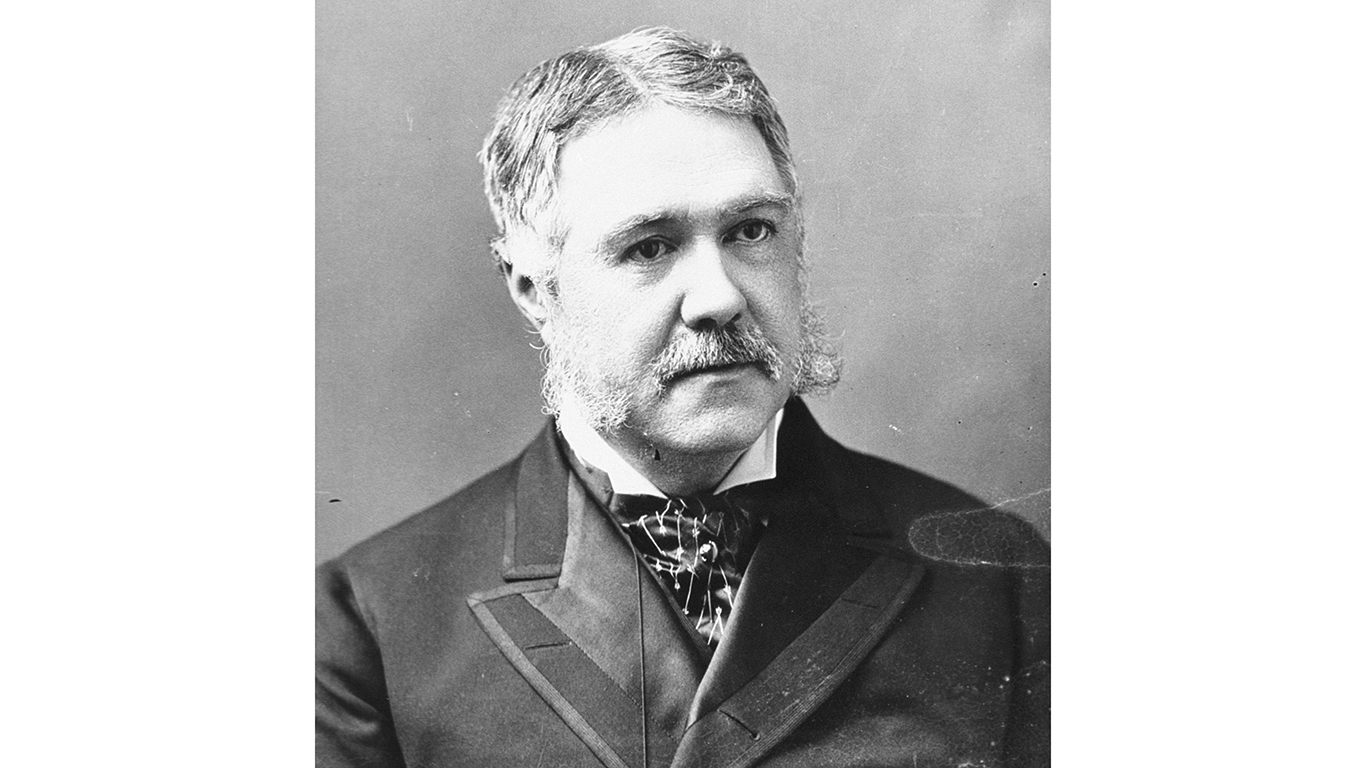
- Religious affiliation: Episcopalian
Chester A. Arthur, the son of a Baptist minister, rejected organized religion, but he attended Episcopalian services with his wife.
20. James A. Garfield
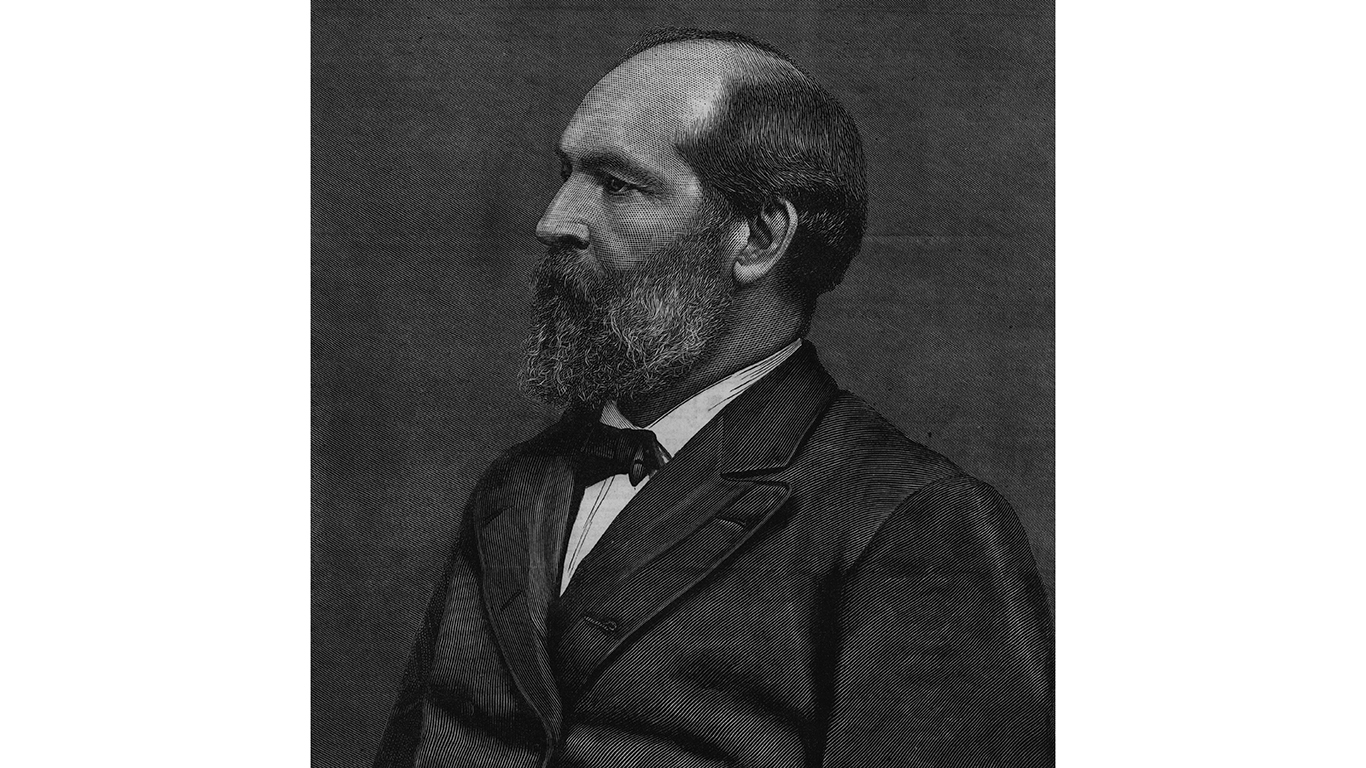
- Religious affiliation: Churches of Christ
Baptized at 18, James A. Garfield was a senior church member and would often preach. However, in his inaugural address, Garfield also believed in a strong separation of church and state.
19. Rutherford B. Hayes
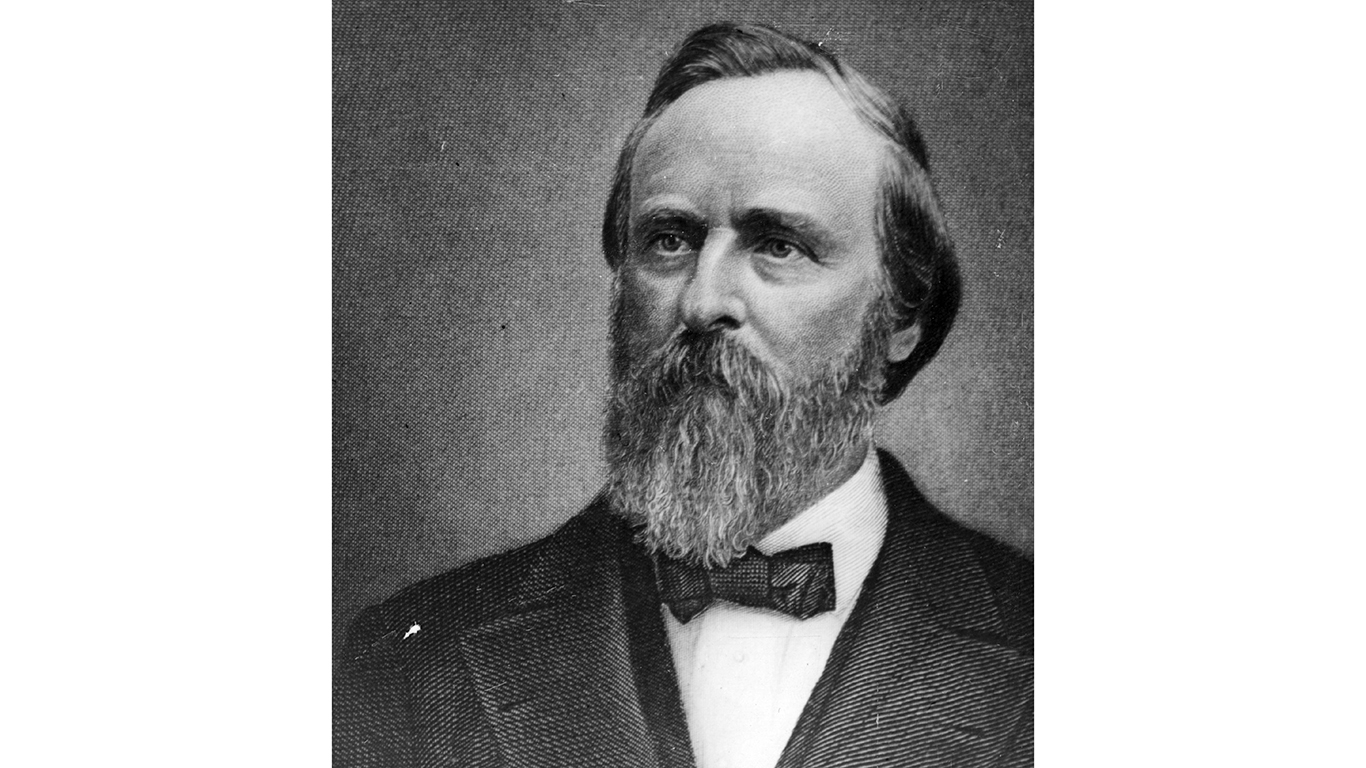
- Religious affiliation: Non-denominational
Rutherford B. Hayes enjoyed studying the Bible and listening to different kinds of preachers and believed in Christianity in general.
18. Ulysses S. Grant
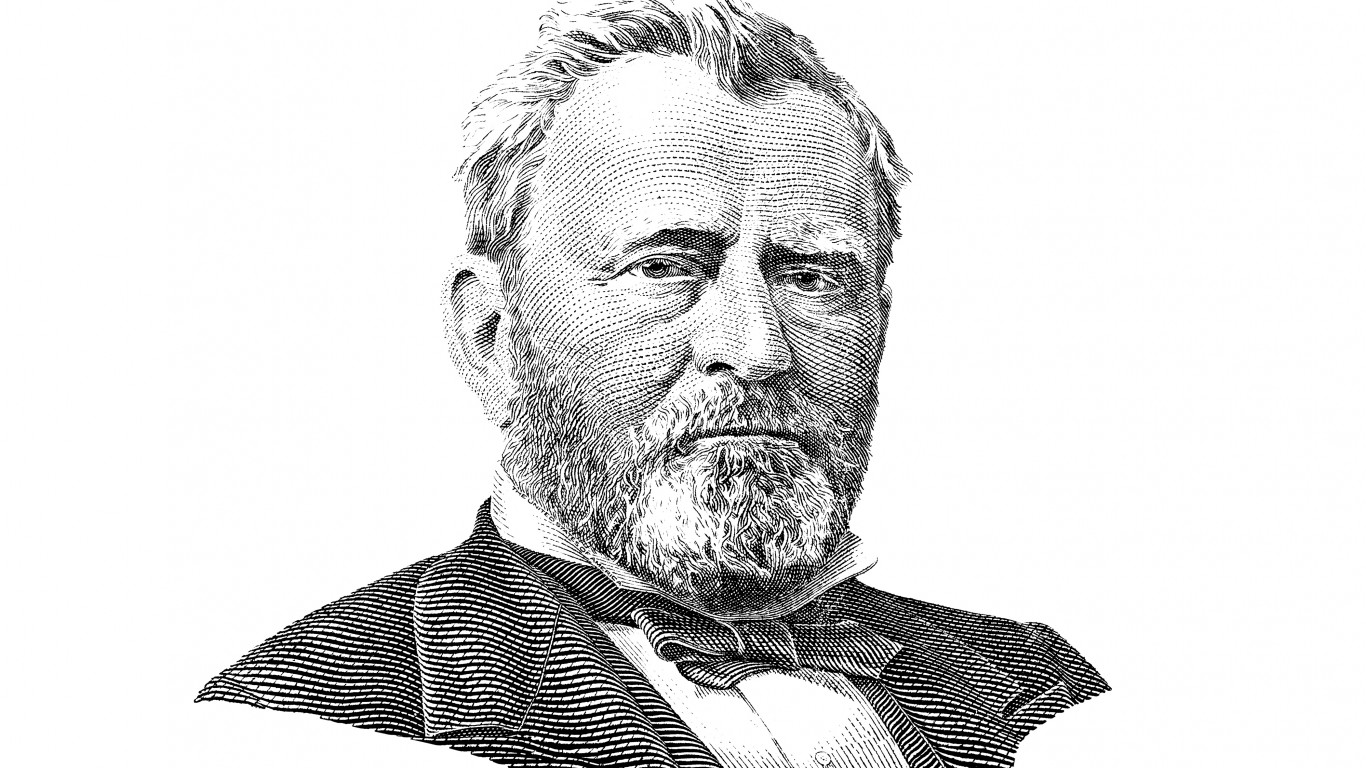
- Religious affiliation: Methodist?
It’s known that Ulysses S. Grant attended Methodist services and is believed to have converted while on his deathbed. Grant also had a difficult time at West Point for failing to attend Church.
17. Andrew Johnson
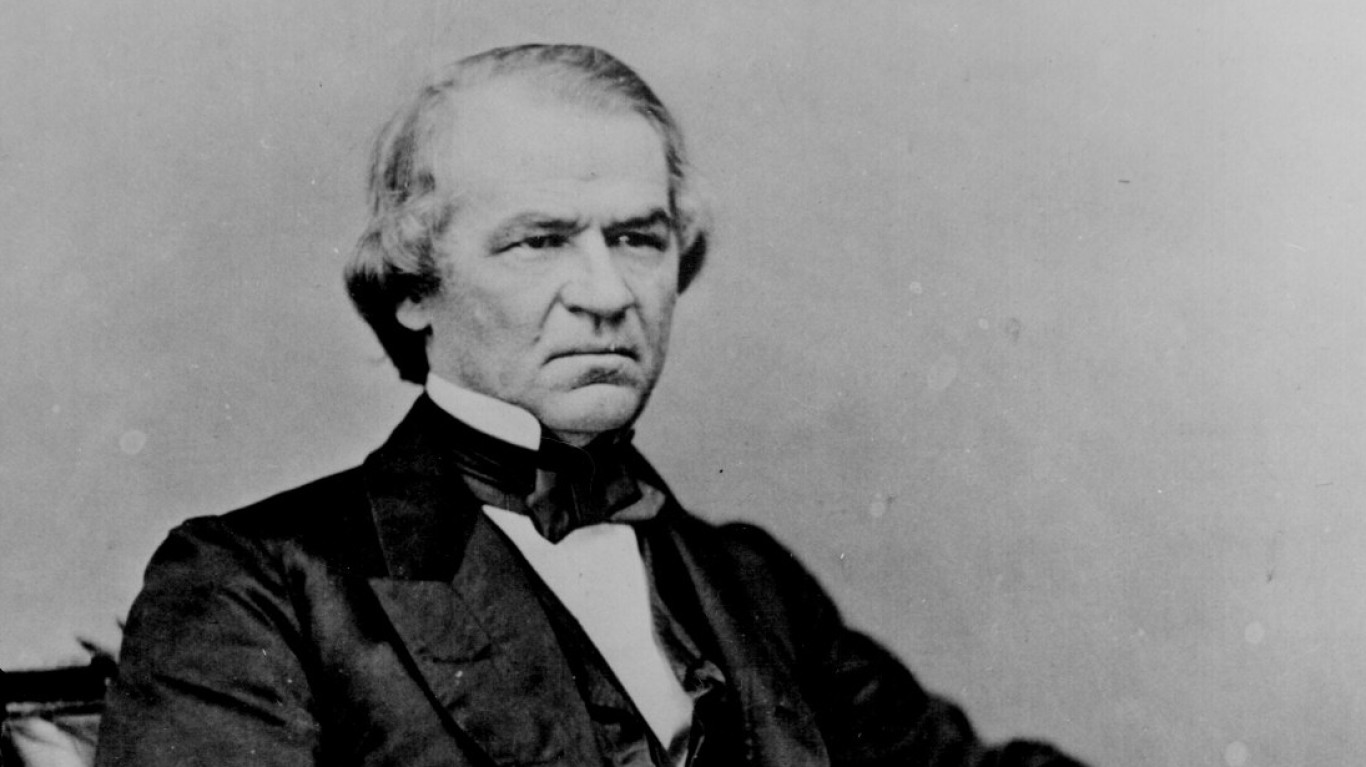
- Religious affiliation: Non-denominational
Andrew Johnson had a difficult relationship with religion. He would join his wife at Methodist services, but after the church supported his impeachment hearing, he broke with them and began attending Catholic services.
16. Abraham Lincoln
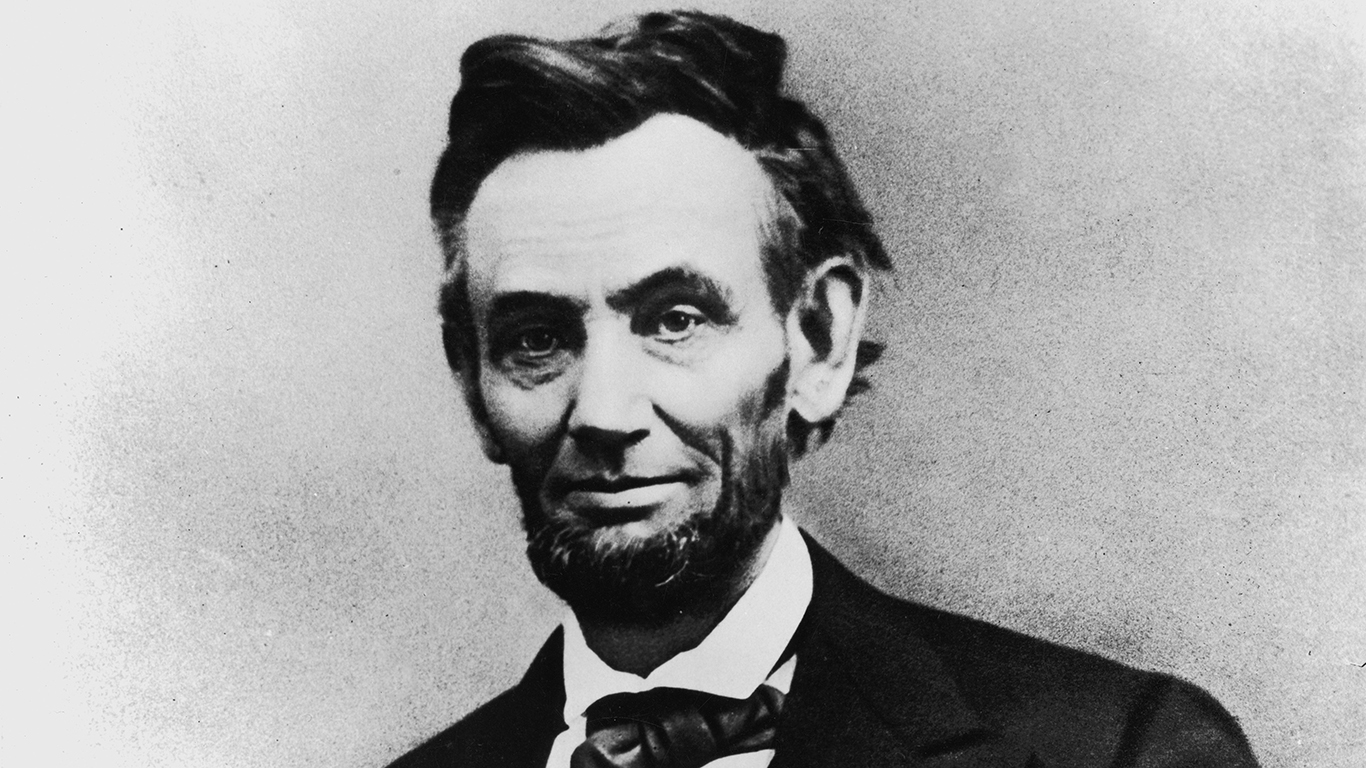
- Religious affiliation: Non-denominational
Along with Jefferson, Abraham Lincoln was famous for not taking a firm stance on personal religion. Although he was born into a Baptist family, Lincoln never joined a church or received communion.
15. James Buchanan
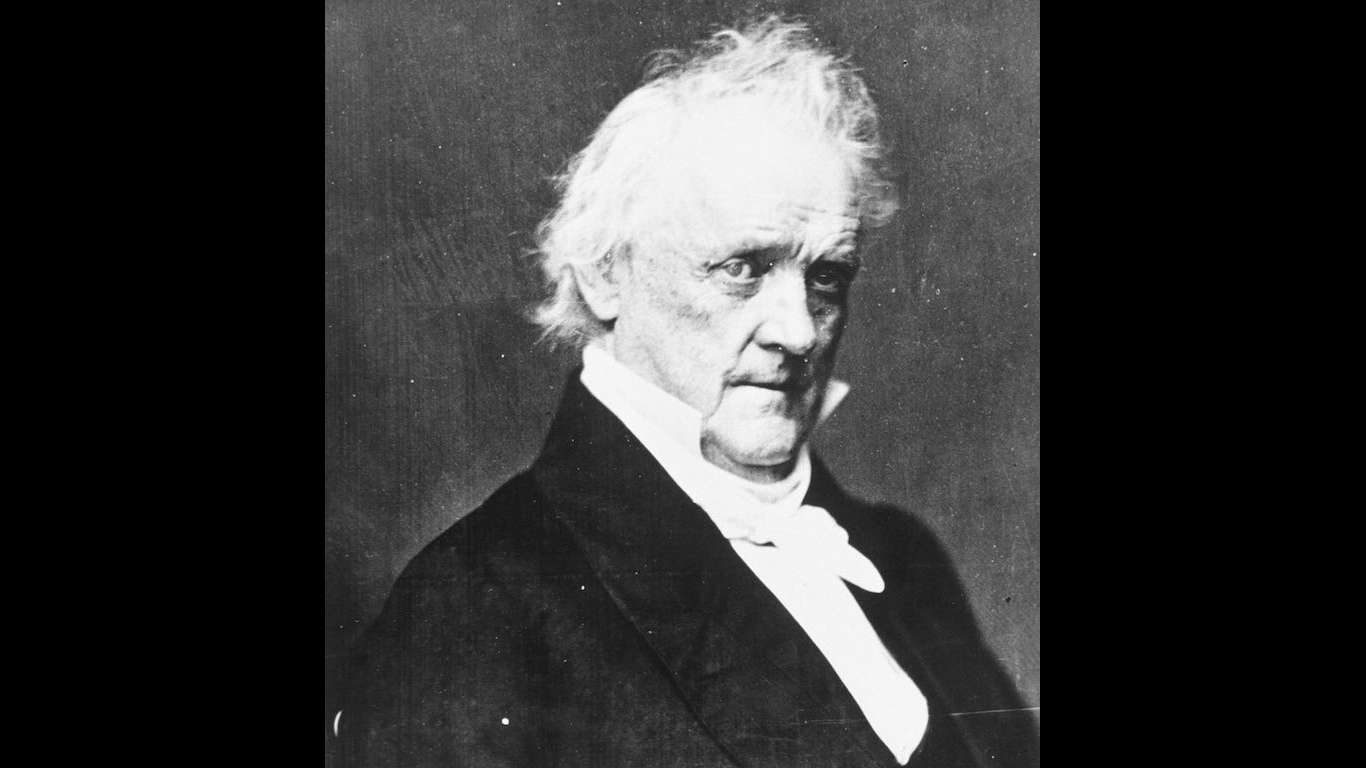
- Religious affiliation: Presbyterian
Born into a Presbyterian family, James Buchanan was a churchgoer but took communion after he finished his time as president.
14. Franklin Pierce
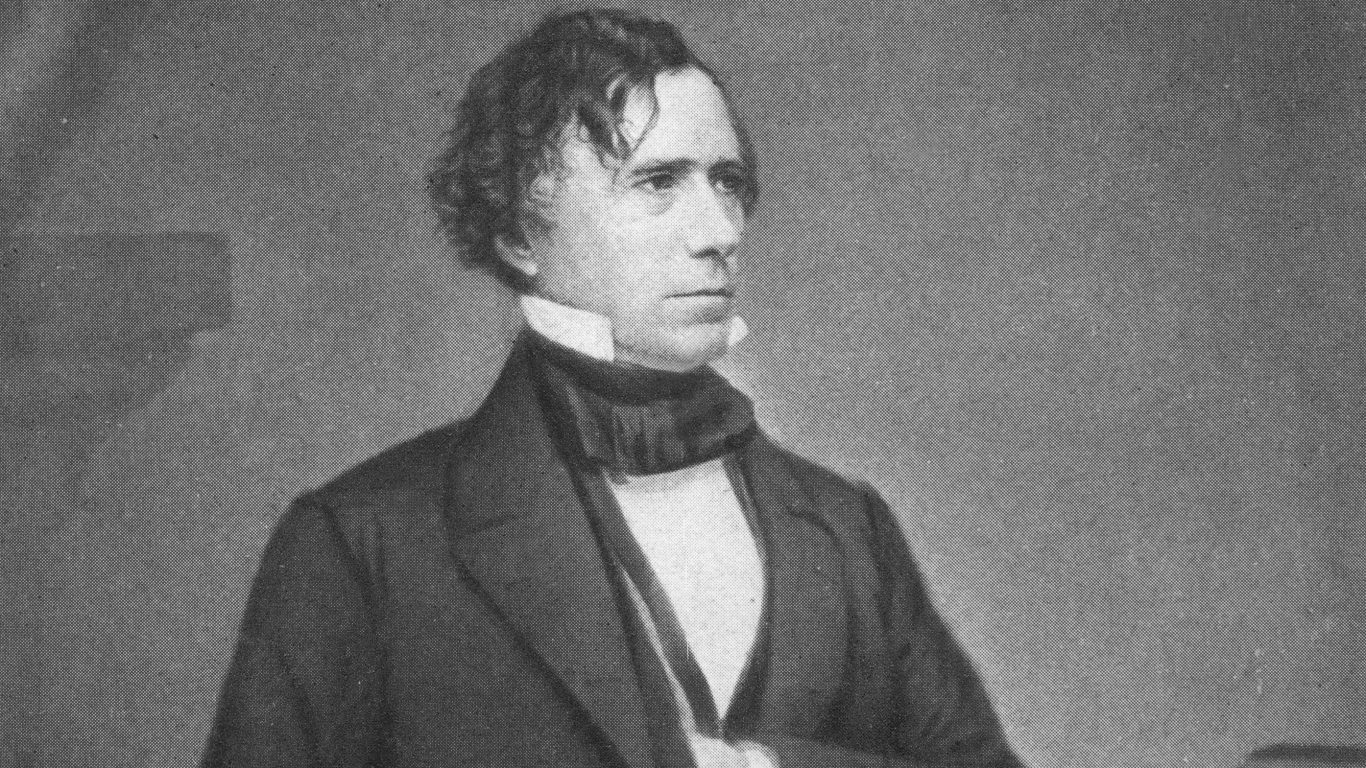
- Religious affiliation: Episcopalian
While he wasn’t considered religious, Franklin Pierce married Jane, who was very devout. Upon leaving office, Pierce was baptized as an Episcopalian and became a church member after returning home to New Hampshire.
13. Millard Fillmore
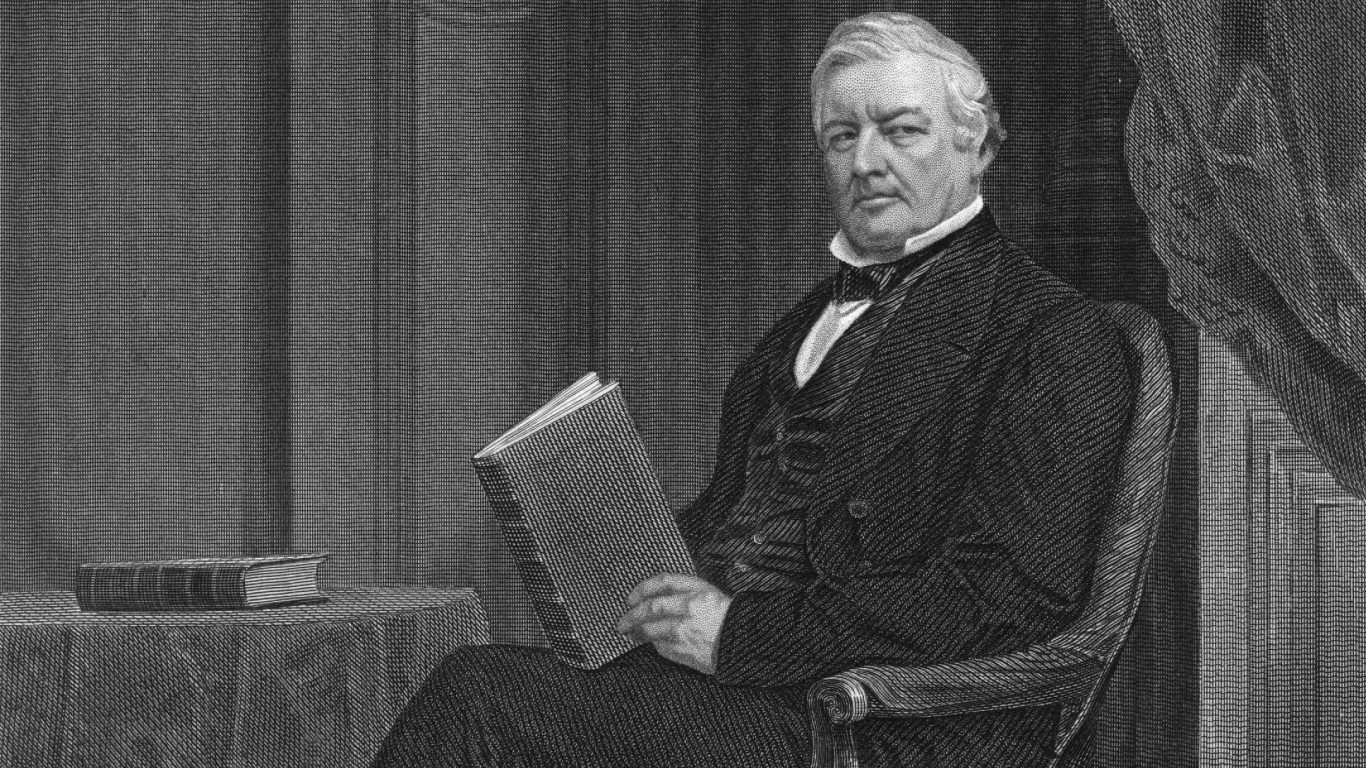
- Religious affiliation: Unitarian
Even after becoming a Unitarian at age 30, Millard Fillmore supported the separation of church and state. He did not allow public funds for religious schools or agendas.
12. Zachary Taylor
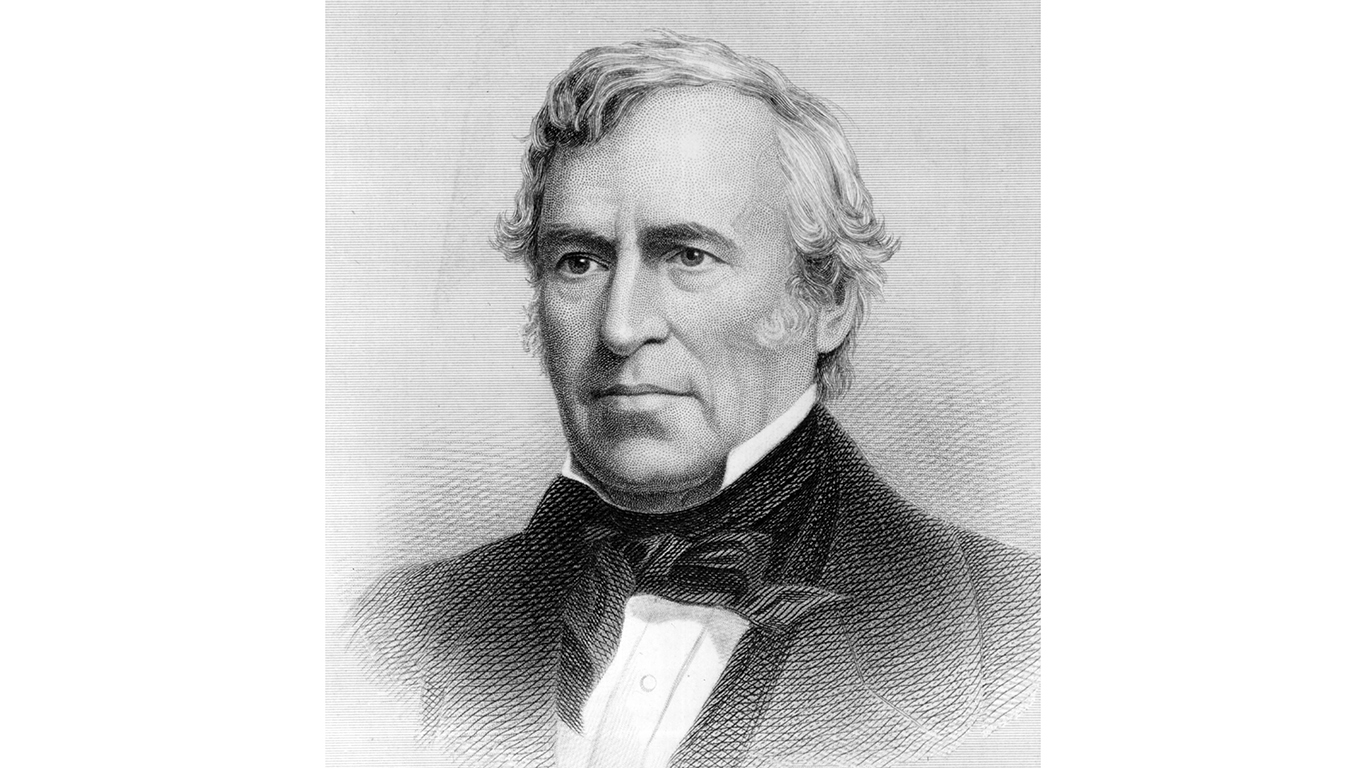
- Religious affiliation: Episcopalian
Zachary Taylor was known for affiliation with the Episcopalian church but was never super active. Taylor famously did not declare any national days of prayer while President.
11. James K. Polk
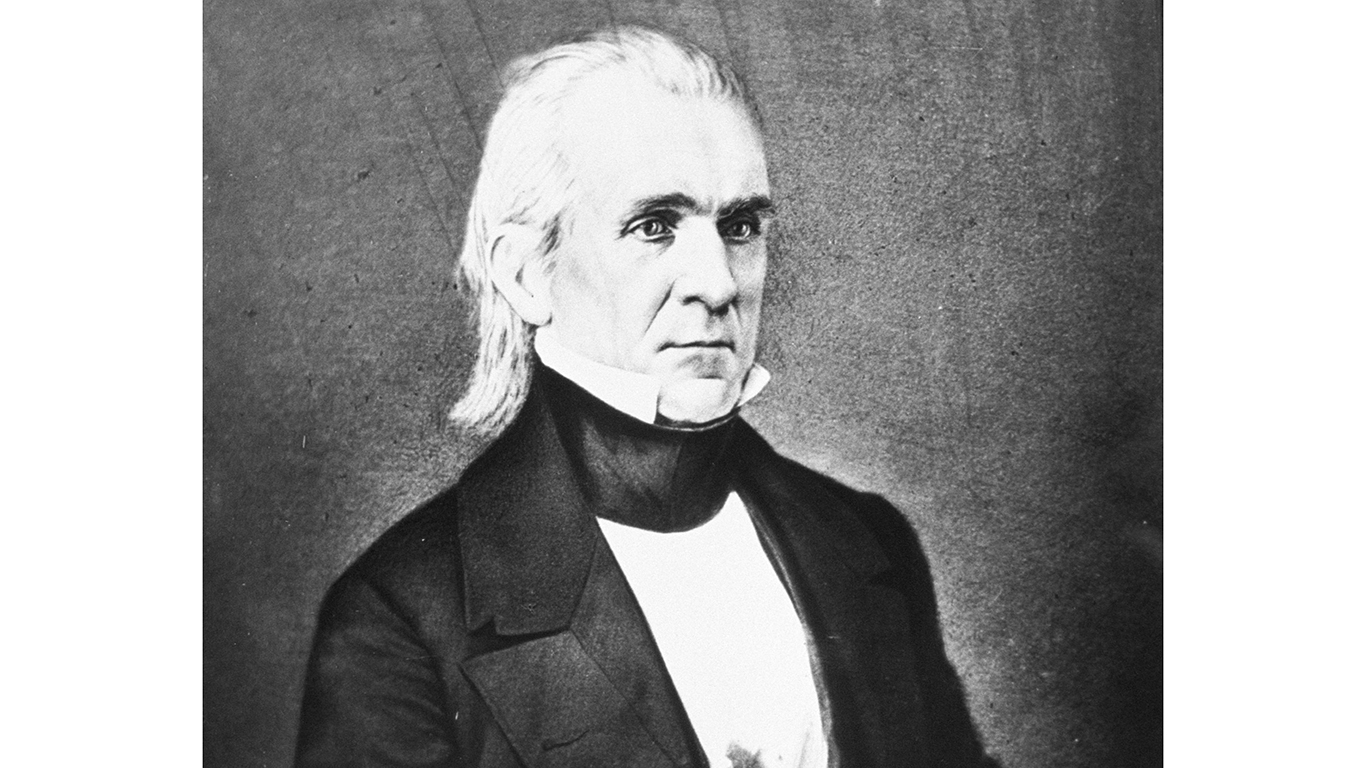
- Religious affiliation: Methodist
Born Presbyterian, James K. Polk did not receive much religious training as a child due to his father. However, he attended Presbyterian services with his wife and would eventually be baptized as a Methodist while dying.
10. John Tyler
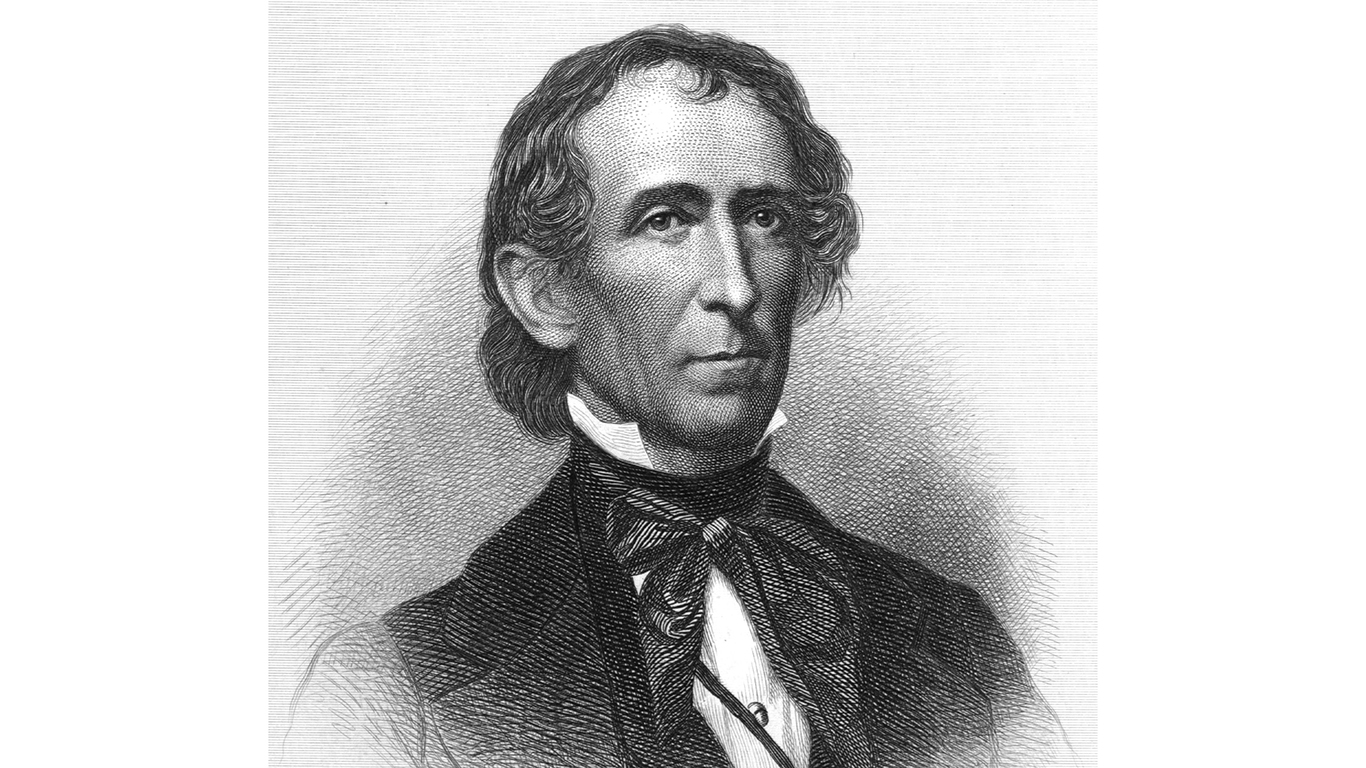
- Religious affiliation: Episcopalian
While he considered himself Episcopalian, no real documentation gives additional insight into John Tyler’s religious views. Supporting the idea Tyler wasn’t very religious is that no religion was administered upon his death.
9. William Henry Harrison
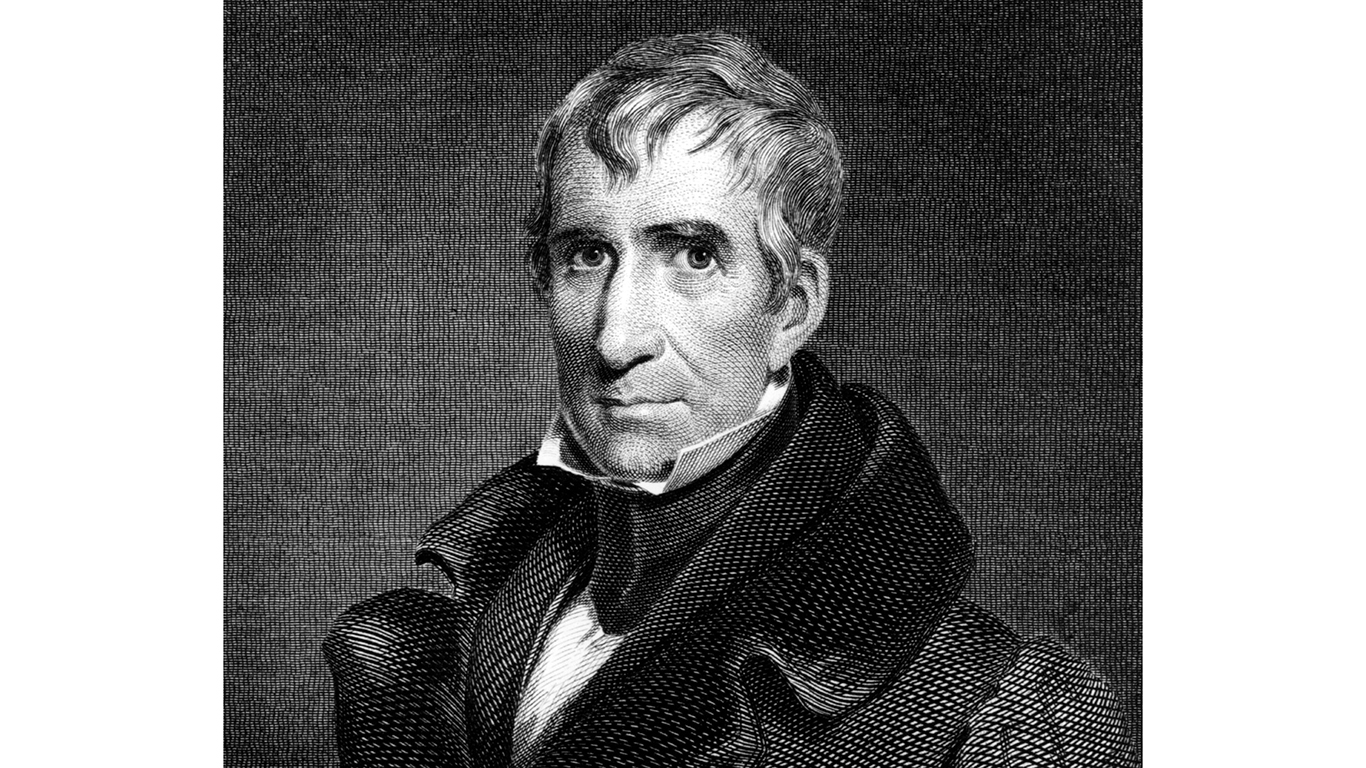
- Religious affiliation: Episcopalian
William Henry Harrison was not particularly known for his religious beliefs or being very religious. It is documented that Harrison was a member of an Episcopal church in Ohio but did not regularly attend.
8. Martin Van Buren
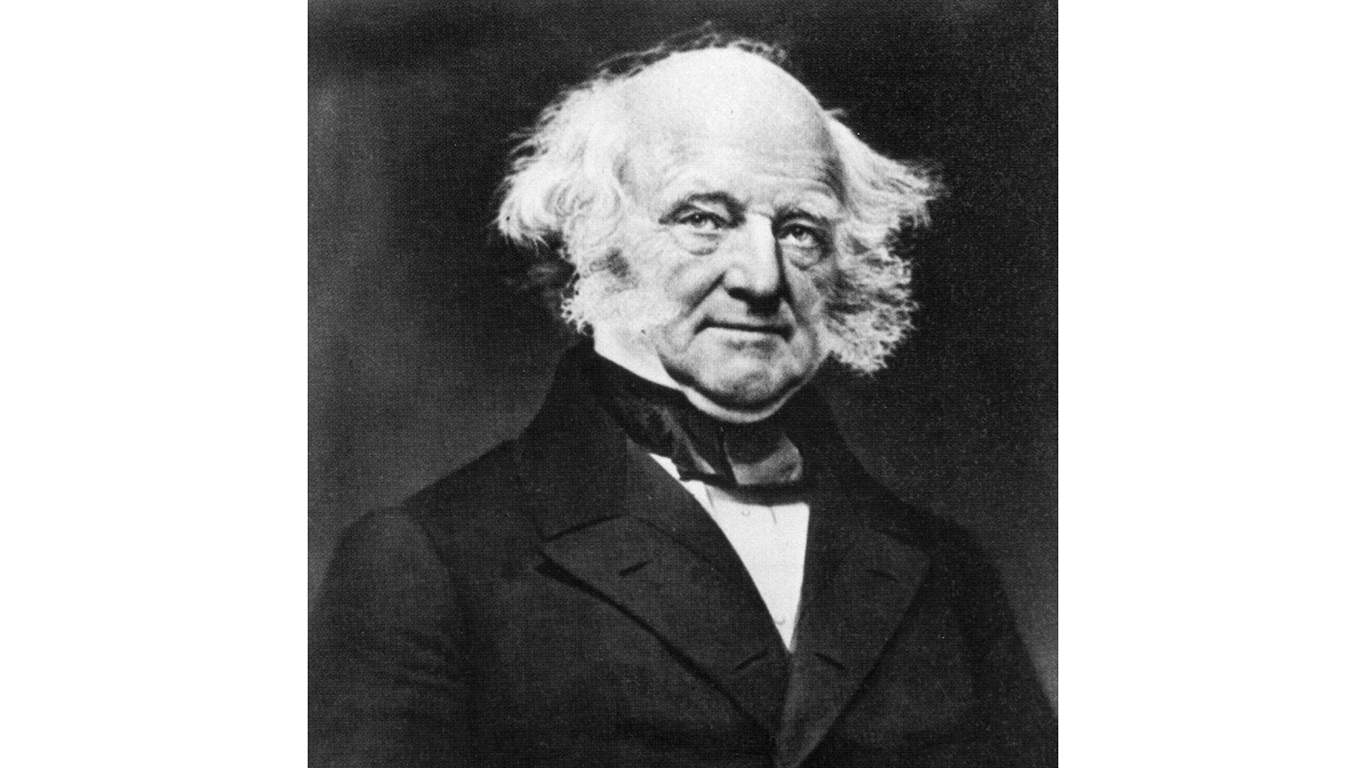
- Religious affiliation: Dutch Reformed
As a boy, Martin Van Buren attended a Dutch Reformed Church and later switched to an Episcopal church while in Washington, D.C. Upon his death, Van Buren chose to be buried at his childhood church.
7. Andrew Jackson

- Religious affiliation: Presbyterian
President Andrew Jackson was well known for regularly attending church services. He joined the Presbyterian Church shortly after leaving office and was known for not forgiving anyone who wronged him in the name of the Lord.
6. John Quincy Adams
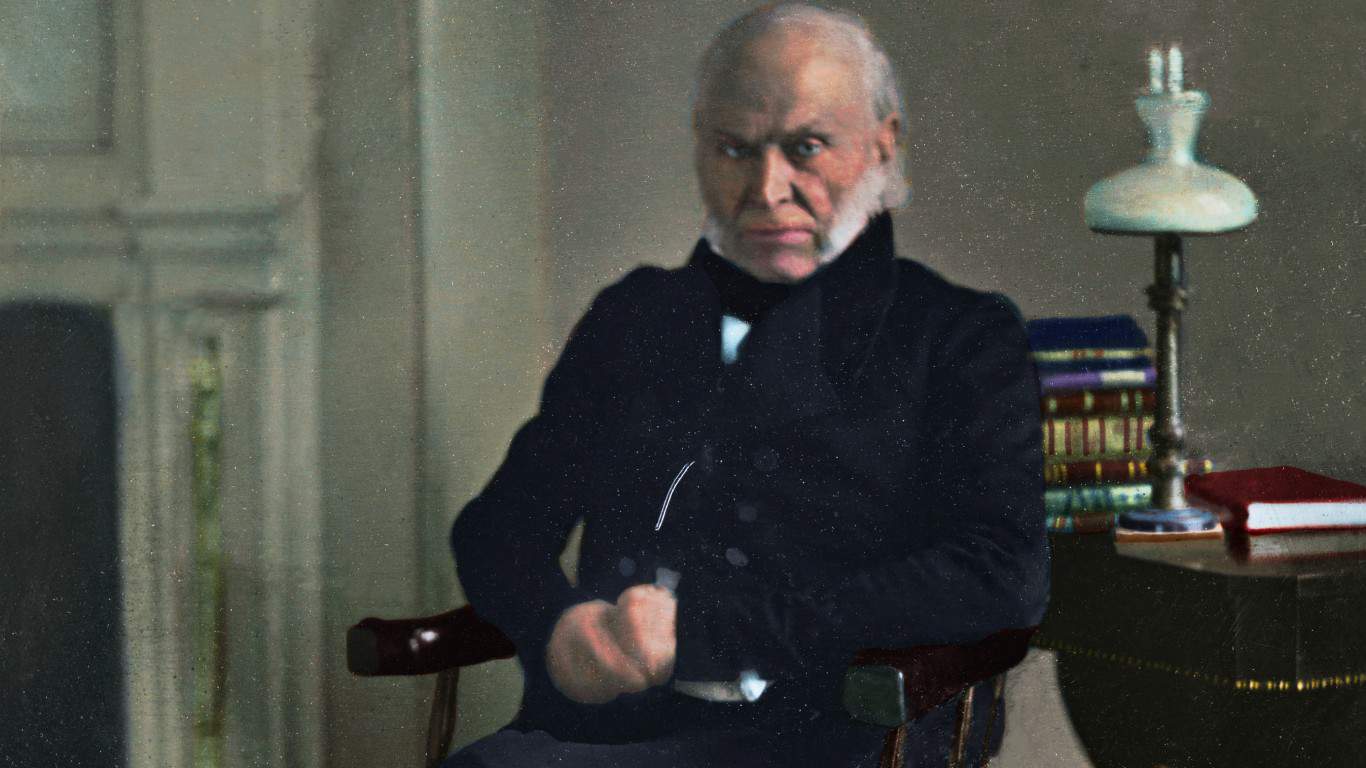
- Religious affiliation: Unitarian
John Quincy Adams may have been the most devout of the first US presidents. Before taking office, Adams studied religion and was well known for not displaying religion, though he was the president of the American Bible Society.
5. James Monroe
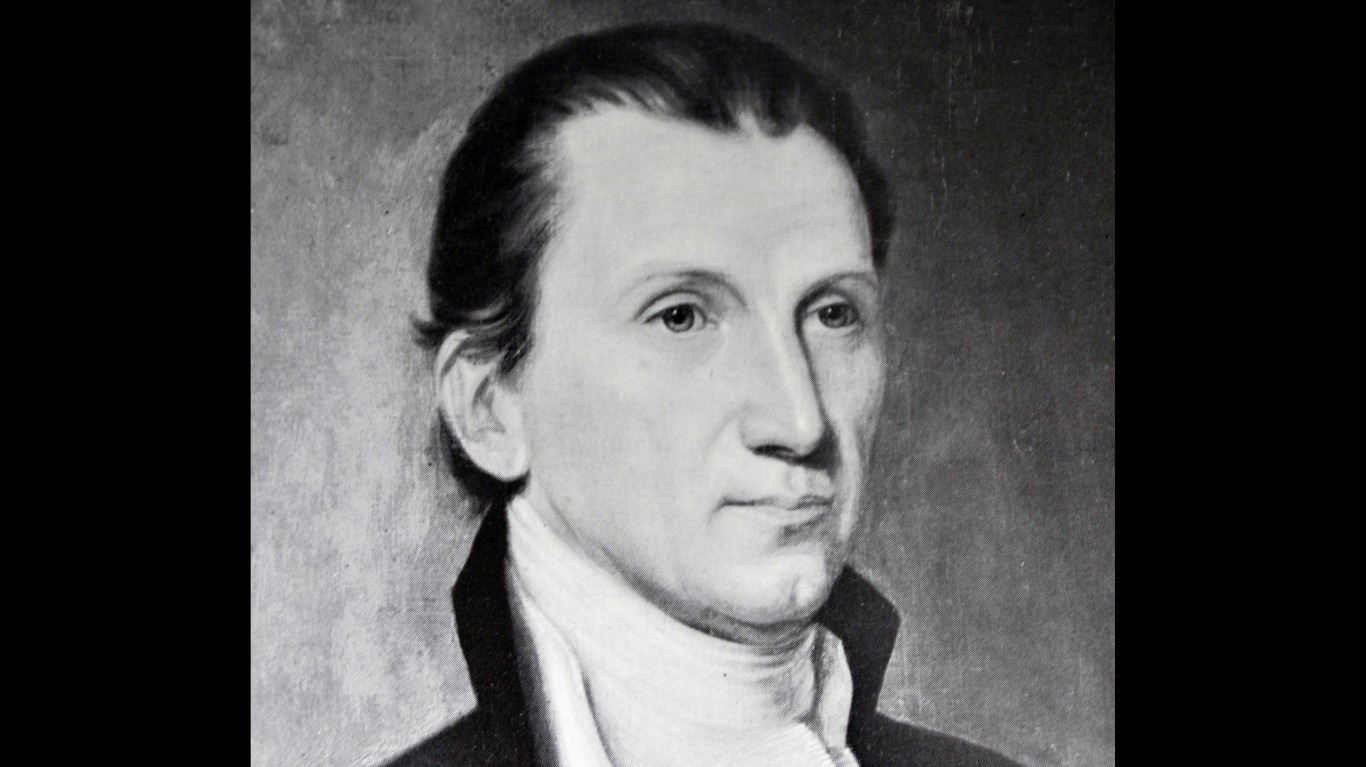
- Religious affiliation: Episcopalian
Plenty of documentation supports James Monroe’s attendance at Episcopal throughout his life, including in office. Unfortunately, none of his private letters or papers mention notable religious beliefs.
4. James Madison

- Religious affiliation: Episcopalian
While James Madison wasn’t a devout follower of religion, he was born and raised as an Episcopalian. Like Jefferson, Madison was aligned with separating church and state and even publicized views critical of organized religion.
3. Thomas Jefferson
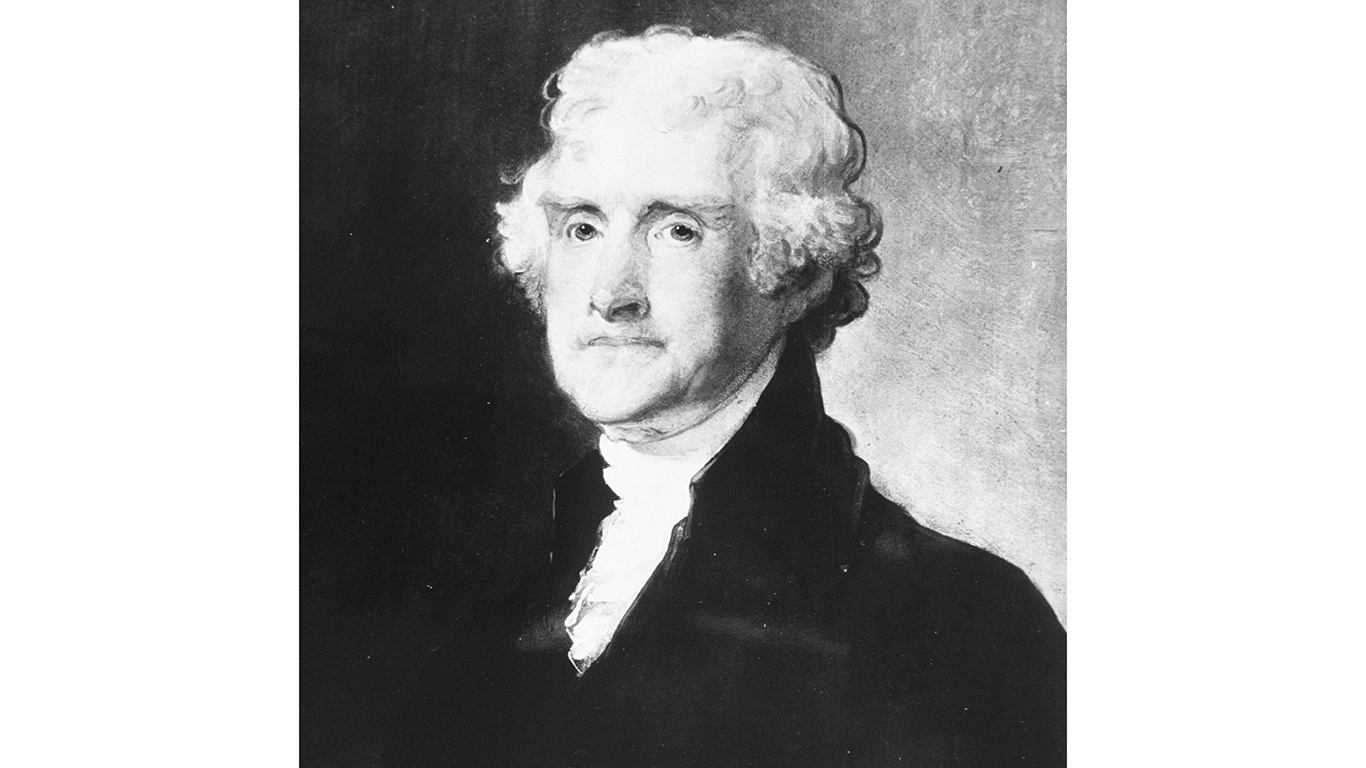
- Religious affiliation: Deist
One of America’s most important founding fathers was a Christian by birth but was known for rejecting Christian ideology. Even though he attended Church regularly, Jefferson strongly opposed the idea of miracles and divinity.
2. John Adams
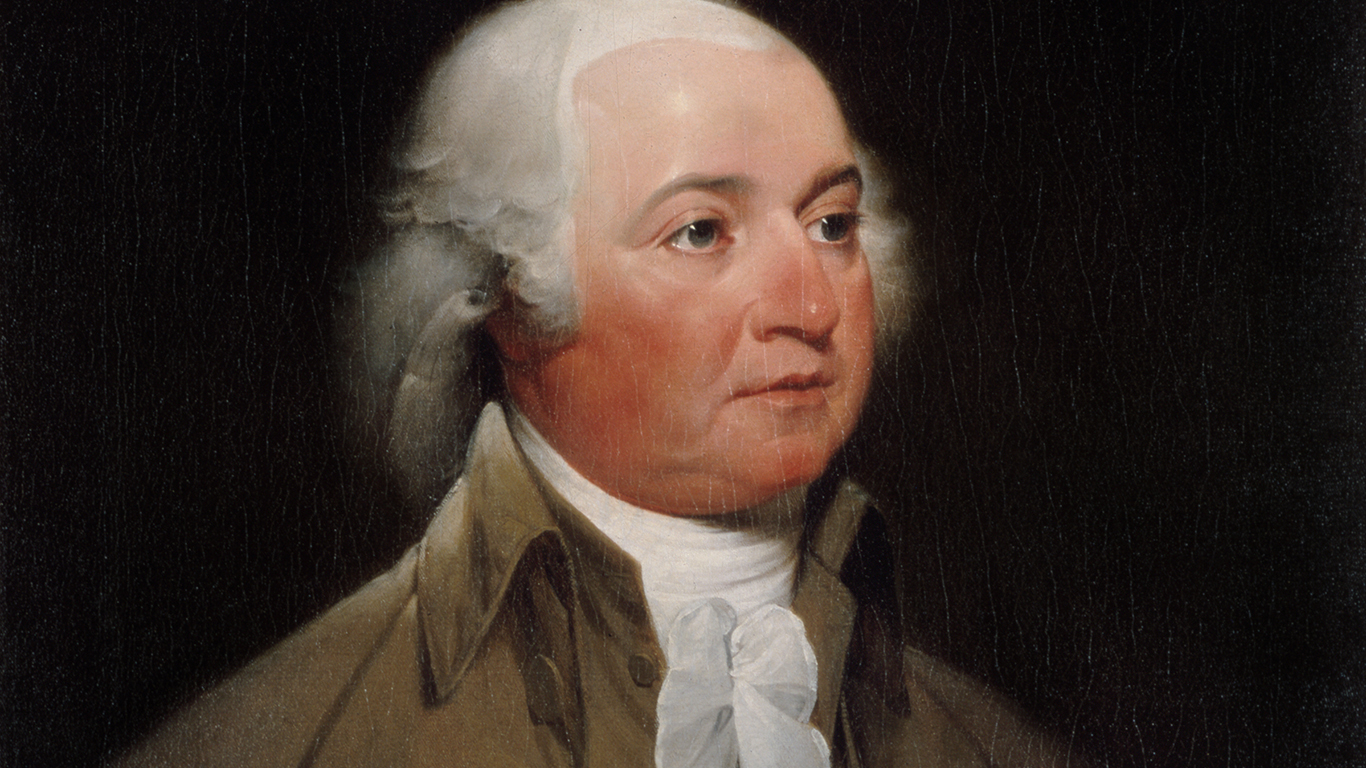
- Religious affiliation: Unitarian
Raised a Congregationalist, John Adam was known for his belief that attending Church and being religious was good for society. However, Adams never imposed his viewpoint on anyone and was a strong opponent of establishing a national religion.
1. George Washington
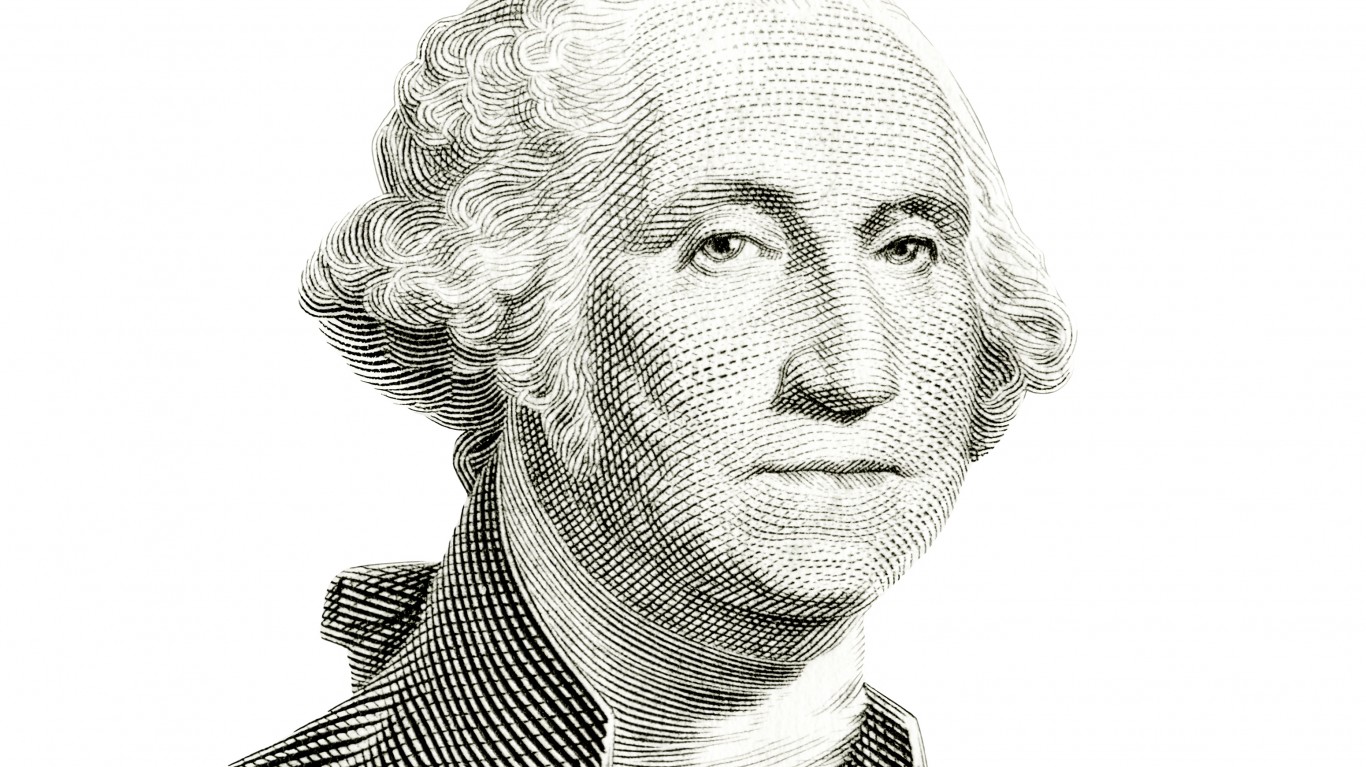
- Religious affiliation: Episcopalian
As America’s first president, George Washington was a man of faith, though he didn’t outright focus on his religion. Washington attended church although he focused more on private prayer.
Take Charge of Your Retirement In Just A Few Minutes (Sponsor)
Retirement planning doesn’t have to feel overwhelming. The key is finding expert guidance—and SmartAsset’s simple quiz makes it easier than ever for you to connect with a vetted financial advisor.
Here’s how it works:
- Answer a Few Simple Questions. Tell us a bit about your goals and preferences—it only takes a few minutes!
- Get Matched with Vetted Advisors Our smart tool matches you with up to three pre-screened, vetted advisors who serve your area and are held to a fiduciary standard to act in your best interests. Click here to begin
- Choose Your Fit Review their profiles, schedule an introductory call (or meet in person), and select the advisor who feel is right for you.
Why wait? Start building the retirement you’ve always dreamed of. Click here to get started today!
Thank you for reading! Have some feedback for us?
Contact the 24/7 Wall St. editorial team.

